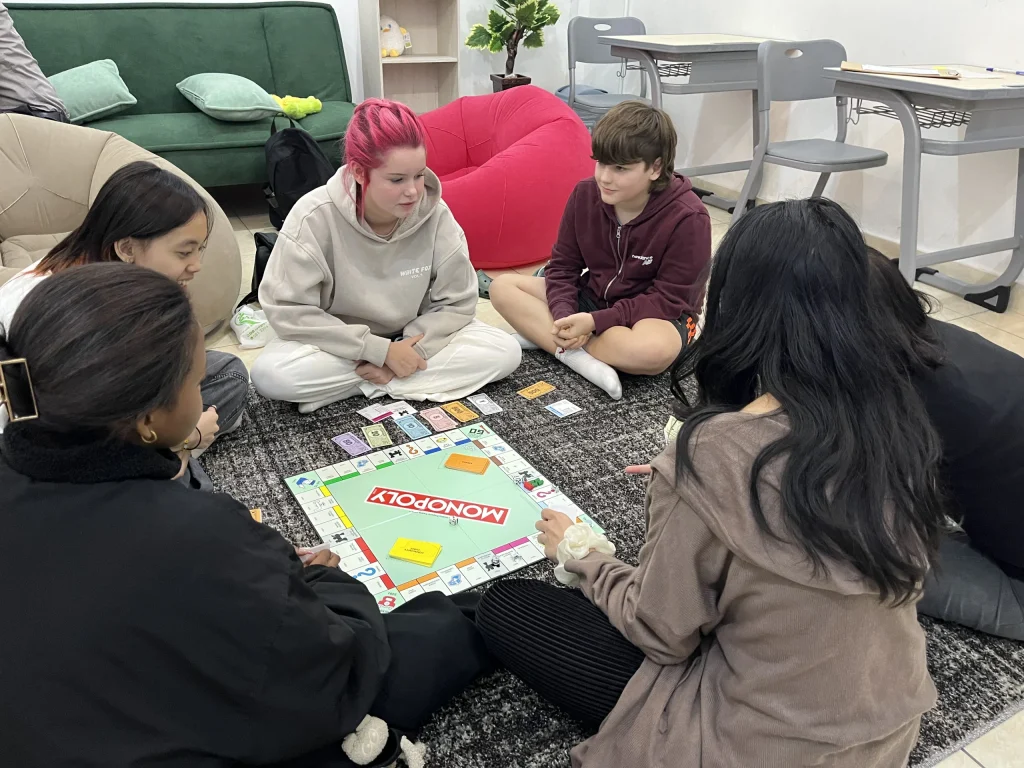
Moving to Bali? Discover a Different Kind of International School for Expats — Jakarta Academics School and College Bali
Relocating to a new country can be both exciting and nerve-wracking, especially when you’re moving your family. One of the biggest questions parents face when moving to Bali is: “Where will my children go to school?”
International schools in Bali are easy to find on Google, but choosing the right one for expat families is a different story. Between hefty tuition fees, long commute times, and limited flexibility, many expat parents feel caught between options that don’t quite fit their child’s needs. That’s where a microschool model like Jakarta Academics School and College Bali stands out.
What Makes a Microschool Different from the Usual International School in Bali?
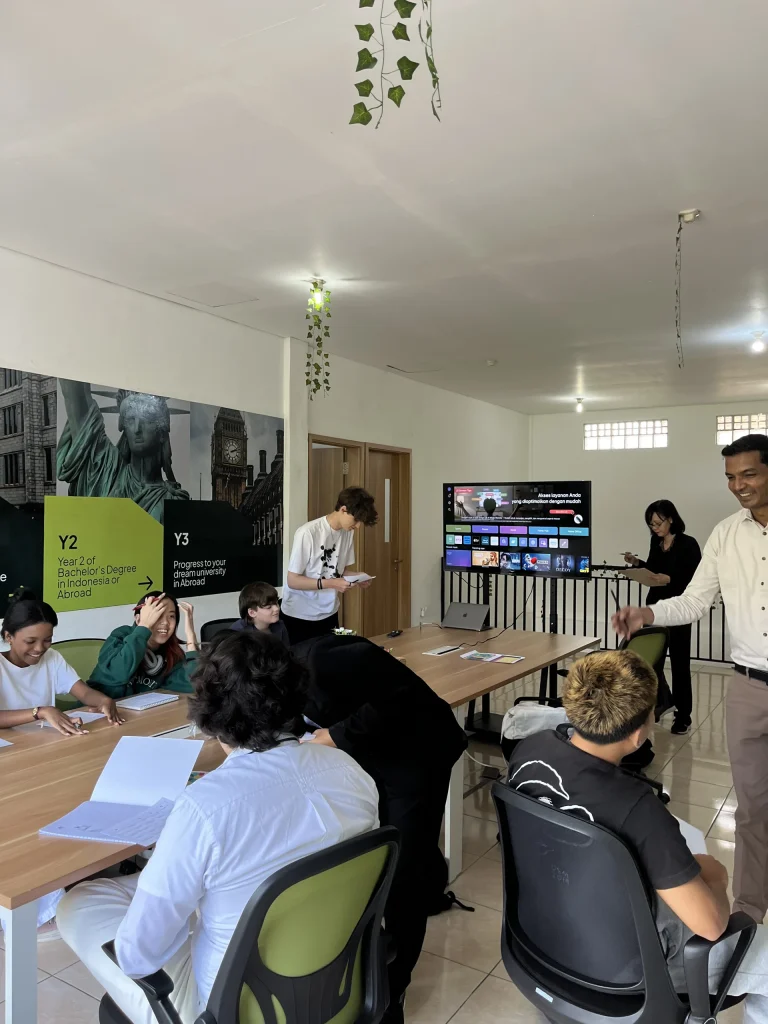
Microschools are small, community-based learning environments that combine the structure of formal education with a more flexible, personalized approach.
Here’s what makes them special:
- Small class sizes: Typically 5–8 students per class, allowing individual attention and less classroom anxiety.
- Flexible learning models: Options for shorter hours, hybrid learning, or customized programs based on a child’s pace.
- Focus on wellbeing: Smaller communities often mean children adapt faster to a new country and culture.
- Global curriculum access: Many microschools integrate international frameworks like Cambridge, Pearson Edexcel, or IB ensuring academic continuity if your family relocates again.
In short, microschools bridge the gap between formal schooling and personalized education perfect for expat families who want the consistency of an international curriculum without the rigidity of large institutions.
School for Expats in Bali: Why Curriculum Matters
Not every school that labels itself “international” in Bali truly offers a globally recognized curriculum. Some adopt locally designed programs with an “international” name, which might not meet the standards of established systems such as:
- Cambridge Assessment International Education
- Pearson Edexcel (UK)
- International Baccalaureate (IB)
When choosing a school for your child, look for one that partners with globally accredited exam boards. These systems ensure your child’s education aligns with international benchmarks and remains transferable if you move again.
Introducing Jakarta Academics School and College Bali
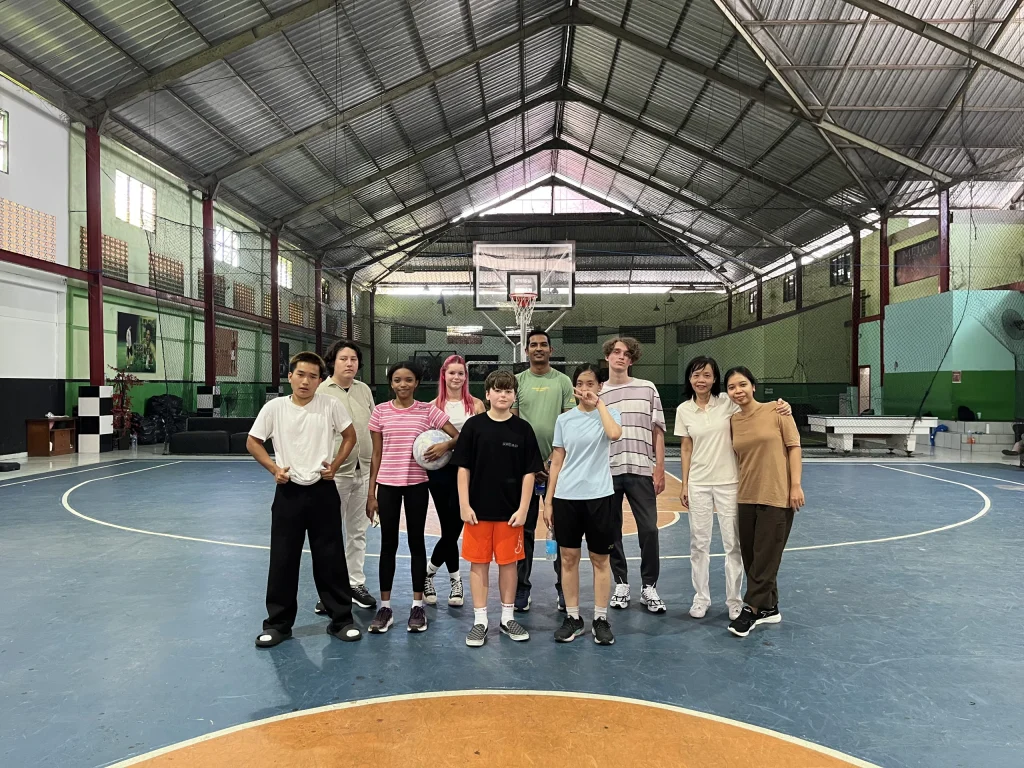
Located in Renon, near Sanur and just a short drive from Kuta, Jakarta Academics School and College Bali (JAS College) offers a truly international microschool experience.
Here’s what sets it apart:
British Curriculum, Global Perspective
Jakarta Academics adopts the UK’s Pearson Edexcel curriculum, recognized worldwide for its academic rigor and flexibility. At the junior college level, students can continue into NCUK (Northern Consortium UK) programs, a direct pathway to international universities.
Multinational Learning Community
With students from diverse nationalities, JA school and College Bali creates an inclusive, multicultural environment where every child feels they belong. This global mix enriches the learning experience, helping students adapt easily to new cultures, a major advantage for expat families.
Personalized Teaching Approach
Each class is capped at around 8 students, allowing teachers to tailor instruction to individual learning styles. Whether your child is an introvert who thrives in quiet settings or an explorer who loves project-based learning, the small-class model ensures their needs are met.
Flexible Learning Options
Understanding that expat families often travel or transition between countries, JA school and College Bali offers hybrid and short-hour programs maintaining academic consistency while respecting family dynamics.
Parent Partnership and Community
Communication is key at Jakarta Academics. Parents are actively involved in progress reviews, extracurricular decisions, and school events, creating a supportive network for both students and families adjusting to life in Bali.
Why Choose a Microschool in Bali Instead of a Conventional International School?
| Feature | Typical International School | Microschool (e.g., JAS College Bali) |
| Class size | 20–25 students | 5–8 students |
| Curriculum | Varies, not always accredited | Pearson Edexcel (UK) |
| Flexibility | Fixed schedule | Hybrid and flexible hours |
| Environment | Larger, more formal | Intimate and student-centered |
| Cost | Higher fees | Generally more affordable |
For expats, the microschool model offers a smoother transition, academic continuity, and a nurturing environment — crucial for children navigating a new cultural landscape.
When searching for an international school in Bali or a school for expats in Bali, it’s easy to get lost among glossy brochures and fancy names. What truly matters is the learning experience, an accredited curriculum, and an environment where your child can adapt and thrive.
If you’re looking for a school that combines British academic standards, global diversity, and personalized education, Jakarta Academics School and College Bali deserves a visit.
📍 Location:
Jakarta Academics School and College Bali
Renon, Denpasar — near Sanur and Kuta
Website: https://jacollege.com
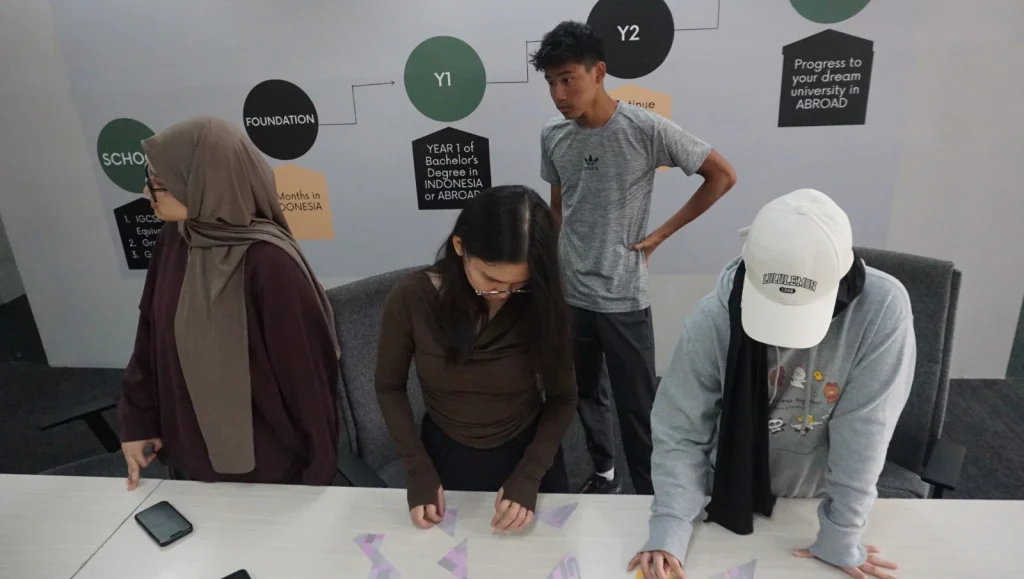
The Future of Education in Indonesia: High School vs Junior College
Education in Indonesia is undergoing a transformation. With rapid globalization, digital innovation, and a growing demand for specialized skills, students are no longer limited to the traditional high school route before university. Junior colleges are emerging as strong alternatives, offering career-focused programs and a faster transition to higher education or the workforce. One standout example is Jakarta Academics College, a fast-growing junior college with campuses in Jakarta and Bali, shaping the future of practical, skill-based learning.
High School: The Traditional Path
For decades, high school has been the standard educational track in Indonesia. Its key features include:
- General Curriculum: Students study a broad range of subjects, from sciences to humanities.
- Social Development: High schools focus on community engagement, teamwork, and extracurricular activities.
- University Preparation: Graduates often take national exams (UTBK) to qualify for university.
While high school builds a strong academic foundation, critics argue that it doesn’t always align with the fast-changing job market or the demand for industry-specific skills.
Junior College: A Rising Alternative
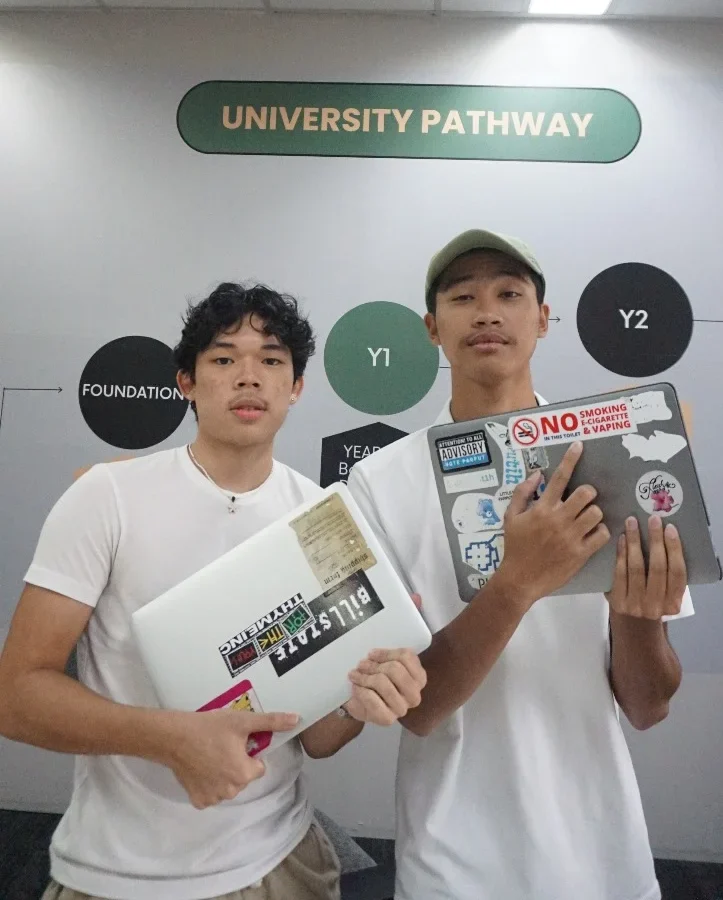
Junior colleges in Indonesia are gaining momentum as institutions that bridge the gap between high school and university. They are designed to:
- Offer Practical Skills: Programs are more hands-on, tailored for industries like business, IT, design, and healthcare.
- Provide Flexibility: Students can continue to university.
- Focus on Affordability: Tuition fees are often lower compared to full university programs.
Spotlight: Jakarta Academics College
Located in Jakarta and Bali, Jakarta Academics College is one of the fastest-growing junior colleges in Indonesia. It is recognized for:
- Innovative programs that combine academic learning with real-world projects.
- A strong network with local businesses, opening opportunities for internships.
- A student-centric approach, blending modern teaching with global perspectives.
This kind of junior college is appealing to students who want to gain career-ready skills without sacrificing academic rigor.
Comparing the Two Paths
| Factor | High School | Junior College |
| Purpose | Prepares students for national exams and university entrance. | Provides both academic foundations and career-focused learning experiences |
| Curriculum | General knowledge (SMA) or vocational training (SMK). | Mix of academic courses plus industry-relevant skills (business, IT, design, healthcare) |
| Duration | 3 years (grades 10–12) | 2–3 years, often designed to transfer smoothly into university programs |
| Pathways | Graduates usually take UTBK for university. | Graduates can continue to university, sometimes with transferable credits |
| Learning Style | Mostly theory-based; practical skills vary (SMK more applied than SMA) | Applied learning with projects, internships, and global exposure opportunities |
| Recognition | Nationally recognized diploma (Ijazah SMA/SMK) | International style diplomas or certificates; often linked to foreign university pathways. |
The Future Outlook for Indonesia
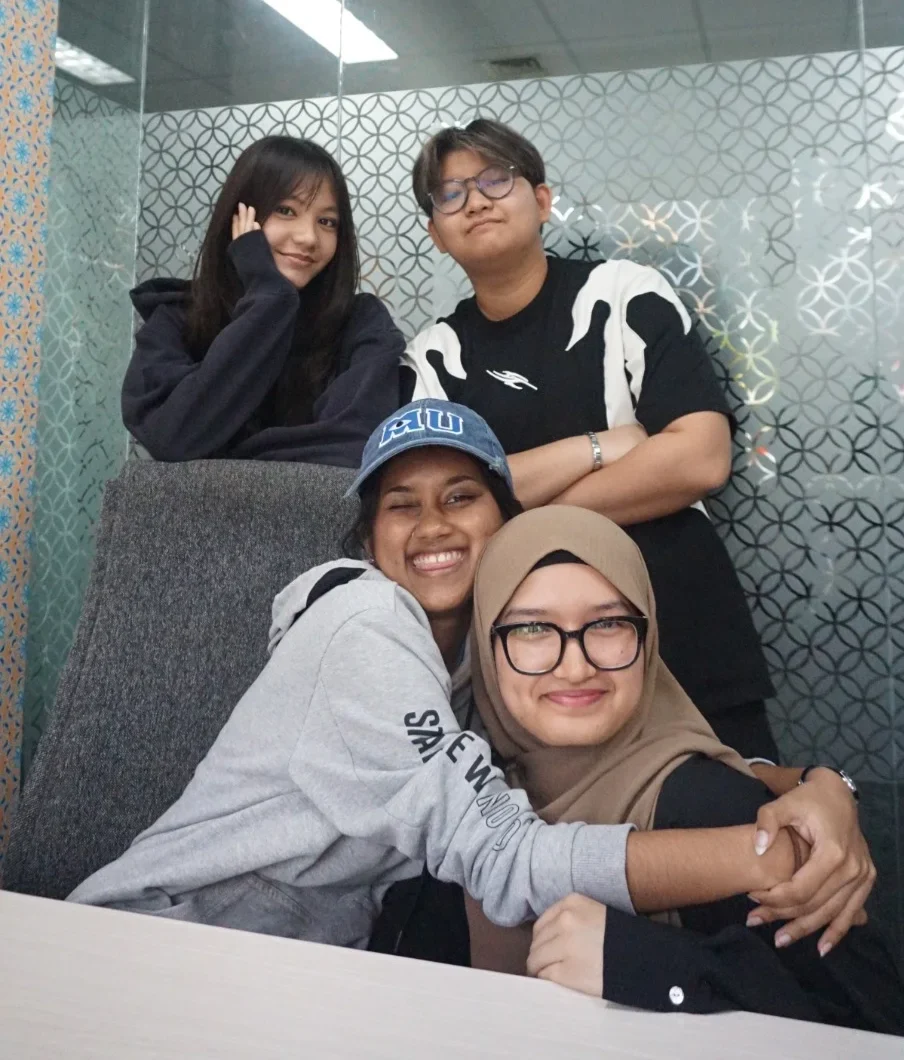
- Hybrid Models: We may see partnerships where high schools integrate junior college-style courses.
- Skill-Based Economy: Employers are prioritizing practical expertise, giving junior college graduates an edge.
- Regional Expansion: With institutions like Jakarta Academics College setting benchmarks, junior colleges could expand beyond major cities into smaller provinces.
The future of education in Indonesia is not about High School vs Junior College, but rather how both can complement each other. High schools remain vital for broad learning and social growth, while junior colleges offer a faster, more targeted pathway to careers and higher education.
For students in Jakarta, Bali, and beyond, institutions like Jakarta Academics College are proof that junior colleges are not just an alternative, they are a growing force shaping Indonesia’s education landscape.
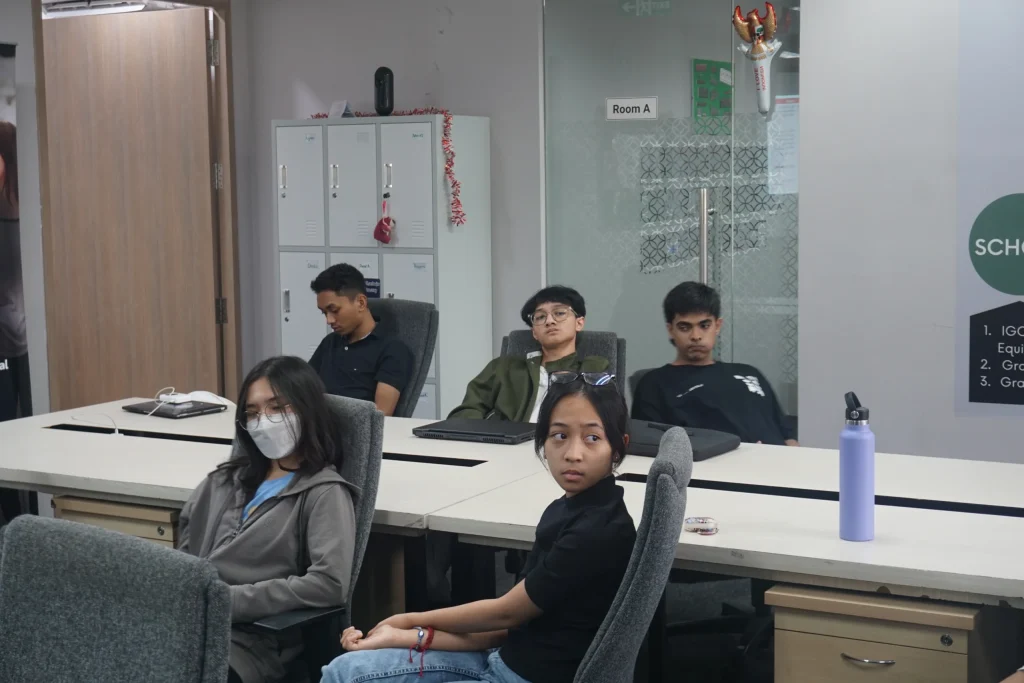
What Is the SAT Test? A Complete Guide for Students & Parents
The SAT (originally “Scholastic Aptitude Test,” then “Scholastic Assessment Test,” though now simply known as SAT) is a standardized admissions exam administered by the College Board used by many colleges and universities, particularly in the United States as part of their admission process.
Its purpose is to help assess how ready a high school student is for college-level academic work by measuring skills in reading, writing, and mathematics. It provides a standardized metric that colleges can use alongside high school GPA, extracurriculars, essays, and recommendation letters.
History & Purpose
- The SAT has been around for nearly a century, it was first introduced in the 1920s.
- Over time, it has undergone reforms and redesigns to keep it aligned with what colleges expect and to ensure fairness.
- The College Board has emphasized that the SAT is designed not just to test memorization, but to assess critical thinking, problem-solving, and analytical skills.
Structure & Format
The current SAT format includes:
Other details:
- The SAT is adaptive (in its digital form) in some aspects: difficulty of modules depends on performance.
- Timing and number of modules: sections are divided into “modules.” The reading & writing section has two modules, the math section has two modules.
Scoring System
- The SAT is scored on a scale from 400 to 1600 points. That’s combining the Reading & Writing section score with the Math section score.
- Each section is scored out of 800.
- Schools often look at percentile rankings too (how a score compares to other test-takers) when evaluating applications.
SAT Test Dates & Registration
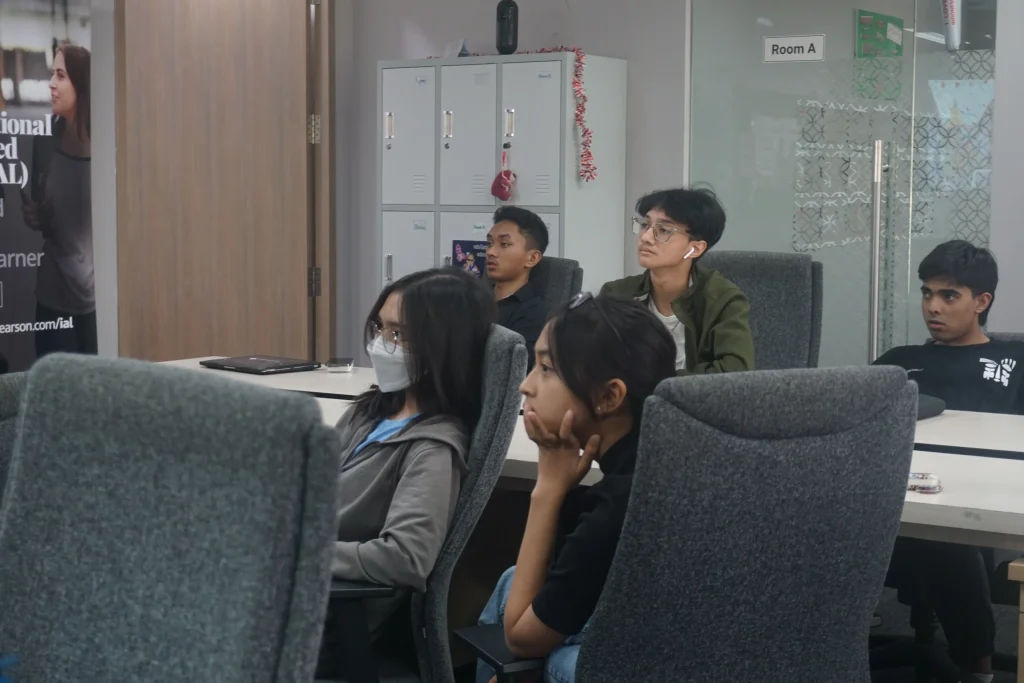
- The SAT is offered multiple times per year. Students should check the official College Board / SAT Suite website for exact dates and registration deadlines.
- There is a registration fee, though fee waivers are available to eligible students.
- For international students, there may be additional fees or regional adjustments.
Who Needs the SAT?
- Students applying to U.S. colleges/universities that require standardized test scores.
- Students who want to strengthen their college applications, good SAT scores can help with admissions decisions or scholarship eligibility.
- Some schools have “test-optional” policies, meaning applicants may choose whether to submit SAT scores. But even in such cases, submitting a strong SAT score can help.
How to Prepare
Here are strategies that often help students improve their SAT scores:
- Take practice tests under timed conditions. This helps with pacing and understanding test format.
- Review content areas – especially math topics and reading/vocabulary skills.
- Use official SAT prep resources such as those on the College Board or linked services like Khan Academy.
- Work on test-taking strategies, such as process of elimination, time management, handling stress.
- Seek feedback or tutoring if certain areas are weak.
Changes & Digital Format
- The SAT has evolved: in recent years, it has transitioned toward a more digital format in many regions.
- Some changes include: shorter test duration, calculator allowed for more parts of the math section, reading passages may be shorter, etc.
- Always check the latest updates on the official site because formats, rules, and policies can change.
Frequently Asked Questions (FAQs)
Q: What is a good SAT score?
A: It depends on the colleges you plan to apply to. Generally, scores above the national average (~1050-1100) are considered solid. More selective institutions often expect scores of 1300-1500+.
Q: Can non-U.S. students take the SAT?
A: Yes. Many international students take the SAT to apply to U.S. schools. There are test centers worldwide, but costs and availability may differ.
Q: Does the SAT have an essay section?
A: The essay used to be optional. However, recent formats in many areas have removed or limited the essay portion. Always check if the test version in your region includes it.
Q: How long are SAT scores valid?
A: Scores are typically valid for 5 years, but you’ll need to verify with specific institutions since some may have their own validity requirements.
The SAT remains one of the most significant standardized tests in the U.S. for college admissions. It gives institutions a common benchmark to compare applicants from diverse educational backgrounds. For students, doing well on the SAT requires understanding the test format, practicing efficiently, staying updated on changes, and managing time and stress.
If you’re planning to take the SAT, start your preparation early, use official resources, and make sure you’re aware of deadlines and registration procedures. With solid preparation, the SAT becomes less daunting and much more an opportunity to showcase your potential.
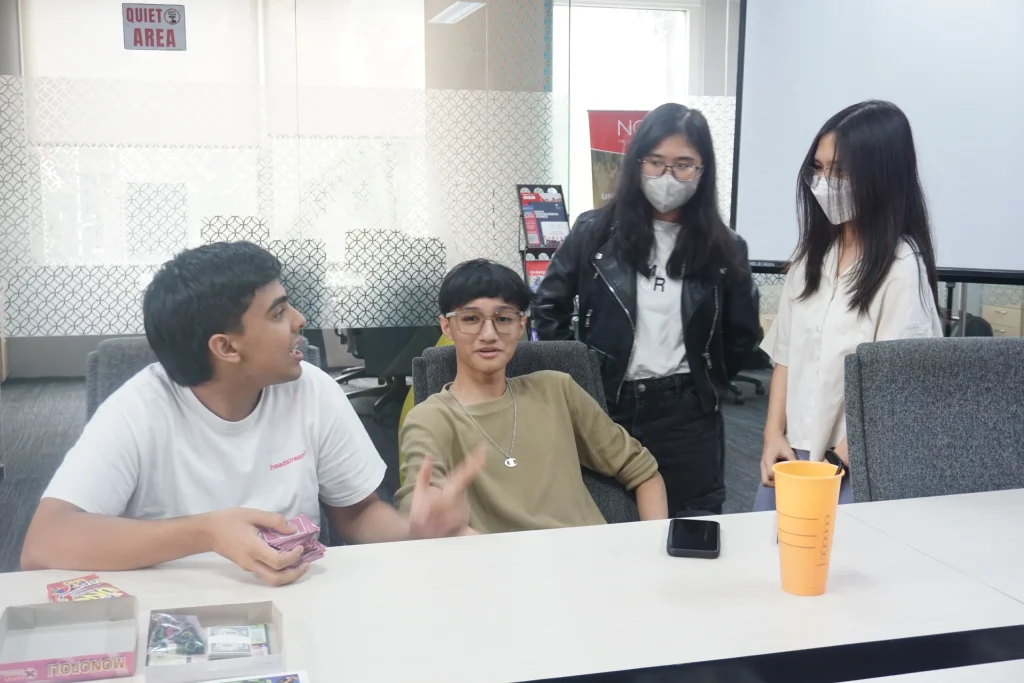
Pearson Edexcel A Level
For students who want a qualification that opens doors to top universities worldwide, A Levels are one of the most recognized academic pathways. Among the different providers, Pearson Edexcel A Level stands out as one of the most trusted and widely accepted qualifications across the globe.
Whether you’re planning to study in the UK, Australia, the US, or Asia, Pearson Edexcel A Levels provide the academic foundation, flexibility, and recognition needed to succeed.
What is Pearson Edexcel A Level?
Pearson Edexcel A Level is a UK-based qualification for students typically aged 16–19. It is considered equivalent to the final two years of high school and is highly respected by universities worldwide.
- Duration: Usually studied over two years.
- Structure: Divided into AS Level (Year 1) and A2 Level (Year 2), which together make the full A Level.
- Recognition: Accepted by universities in the UK, USA, Canada, Australia, New Zealand, Europe, and Asia.
Pearson Edexcel is part of Pearson, the UK’s largest awarding organization, making it one of the most trusted names in international education.
Why Choose Pearson Edexcel A Levels?
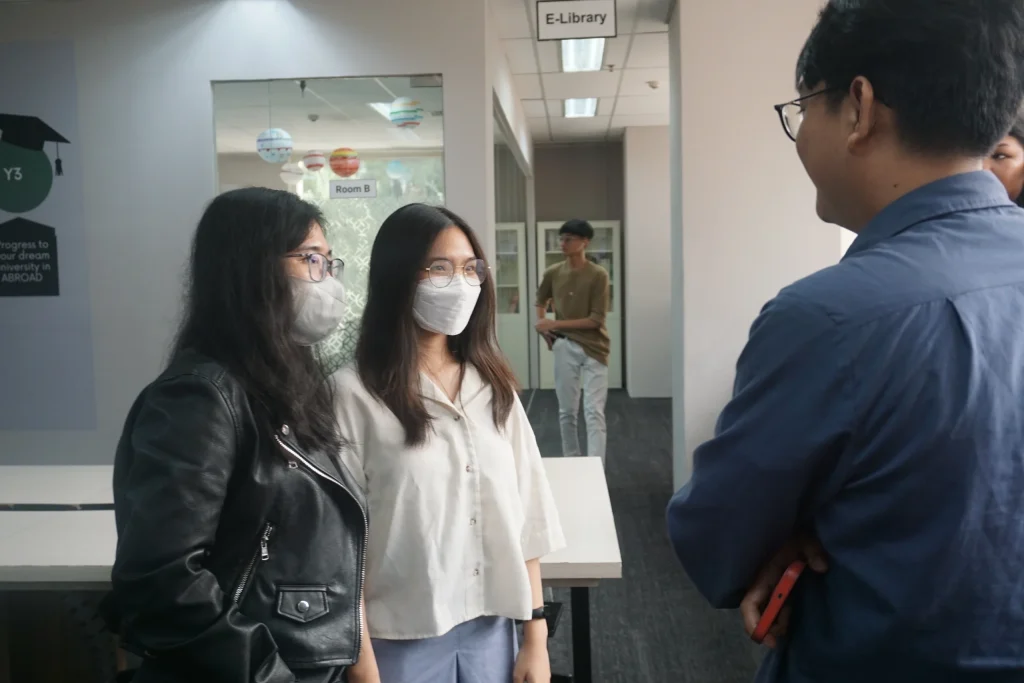
There are several reasons why students and parents choose Edexcel over other A Level exam boards:
- Global Recognition: Accepted by thousands of universities worldwide.
- Wide Subject Choices: Over 40 subjects, ranging from sciences and mathematics to business, law, and humanities.
- Flexible Assessment: Modular exams mean students can sit papers in stages rather than all at once.
- Strong University Preparation: Builds independent thinking, research skills, and subject mastery.
- Clear Grading System: Transparent grading with internationally consistent standards.
Subjects Offered in Pearson Edexcel A Levels
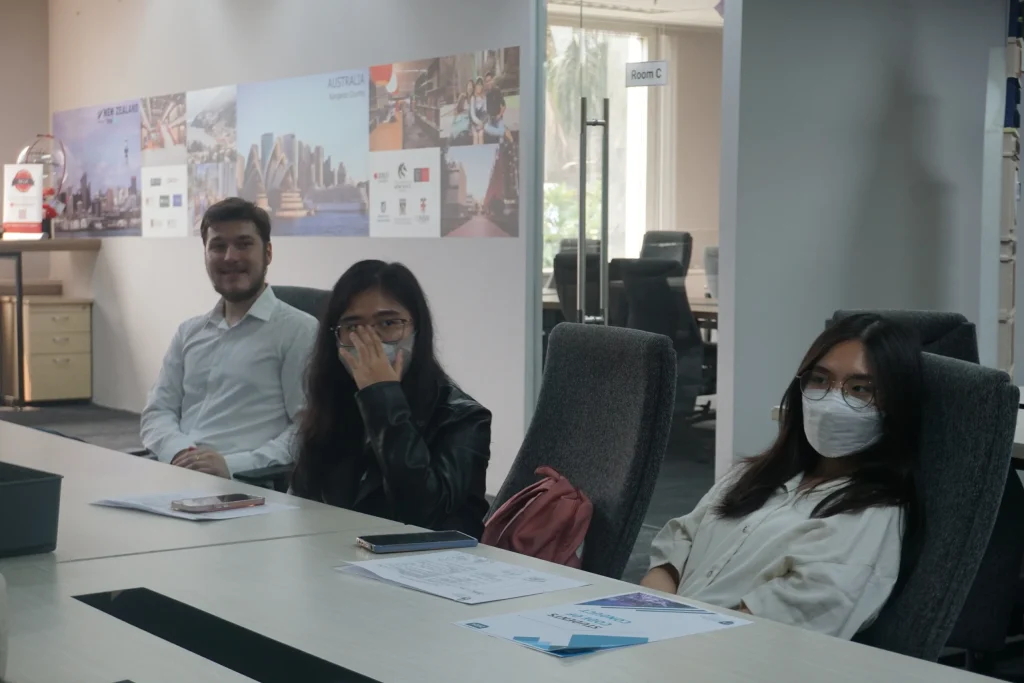
Students can select from a wide range of subjects depending on their career goals and university ambitions. Popular options include:
- Sciences: Biology, Chemistry, Physics
- Mathematics: Mathematics, Further Mathematics
- Business & Economics: Accounting, Business, Economics
- Humanities: History, Geography, Psychology, Law
- Technology & Arts: Computer Science, Art & Design, Media Studies
This flexibility allows students to create a pathway suited to their chosen degree or career.
How Are Pearson Edexcel A Levels Assessed?
Assessment is a key strength of the Edexcel A Level system. Students are evaluated through:
- Written Exams – typically at the end of each module or year.
- Coursework – depending on the subject, certain projects or assignments contribute to the final grade.
- Modular Approach – students can retake specific units to improve grades without repeating the entire subject.
Grades are awarded on a scale from A to E*, with A* being the highest.
Benefits of Pearson Edexcel A Levels for Students
- Direct University Entry – A Levels are the standard entry qualification for UK universities and are highly valued worldwide.
- Critical Thinking Skills – Encourages analysis, evaluation, and independent research.
- Flexibility – Students choose subject combinations tailored to their strengths and career goals.
- University Preparation – Academic rigor ensures students are well-prepared for undergraduate study.
- International Pathways – Recognized in more than 140 countries, providing global mobility.
Pearson Edexcel vs Other Curriculums
Parents often ask how Pearson Edexcel A Levels compare to other international qualifications like Cambridge A Levels, IB Diploma, or AP.
- Edexcel A Levels: Modular exams, flexible retakes, wide recognition.
- Cambridge A Levels: Linear exam structure (all exams at the end).
- IB Diploma: Broader subject requirements, less flexibility in subject choice.
- AP (Advanced Placement): US-focused, but not as widely accepted outside the US compared to A Levels.
For students who prefer flexibility and clear progression, Pearson Edexcel A Levels are an excellent choice.
Where Can You Study Pearson Edexcel A Levels?
Pearson Edexcel qualifications are available worldwide through approved schools and learning centers. In Indonesia, for example, Jakarta Academics College is an official Pearson Edexcel Study Centre, offering students direct access to exams, academic support, and globally recognized preparation.
If you are aiming for admission into top universities in the UK, Australia, New Zealand, the US, or beyond, Pearson Edexcel A Levels provide one of the strongest foundations. With its flexible structure, wide subject choices, and global recognition, it equips students not only with academic knowledge but also the confidence and skills needed for higher education.
For students in Indonesia, trusted providers like Jakarta Academics College make it possible to pursue Pearson Edexcel A Levels with official accreditation and expert guidance, bringing global education opportunities closer to home.
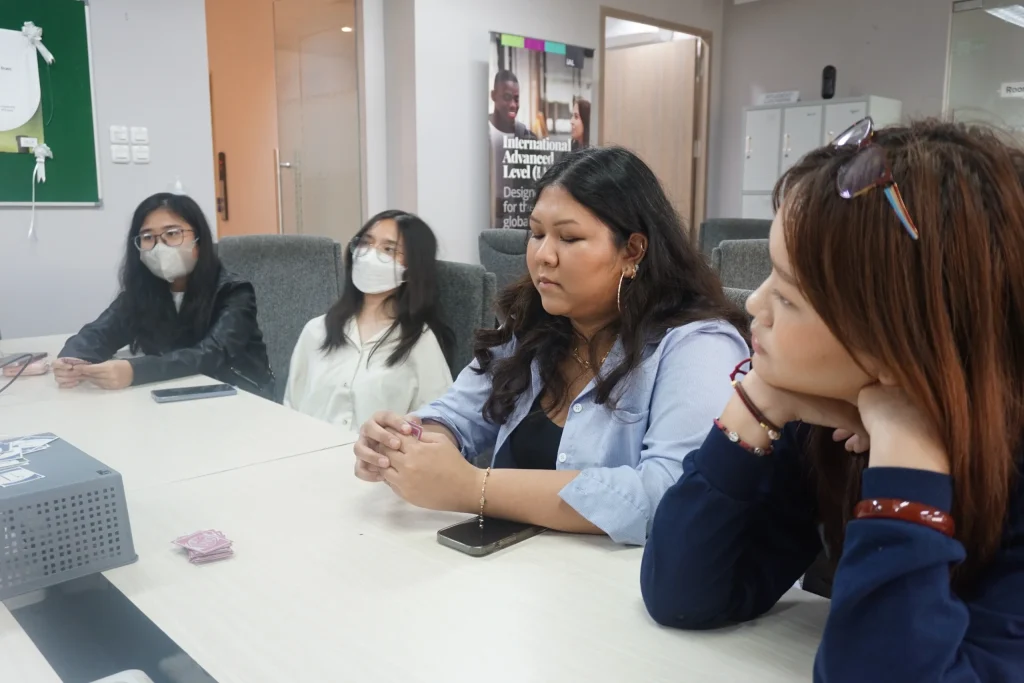
International Year One Programme
The International Year One is a unique pathway designed to give international students a direct entry into the second year of a university degree. Equivalent to the first year of an undergraduate program, it allows students to save time while still enjoying a globally recognized qualification.
With six subject routes and progression options to more than 300 degree courses across 30+ leading universities in the UK, Australia, and New Zealand, the International Year One opens doors to world-class education and future opportunities.
Why Choose the International Year One Programme?
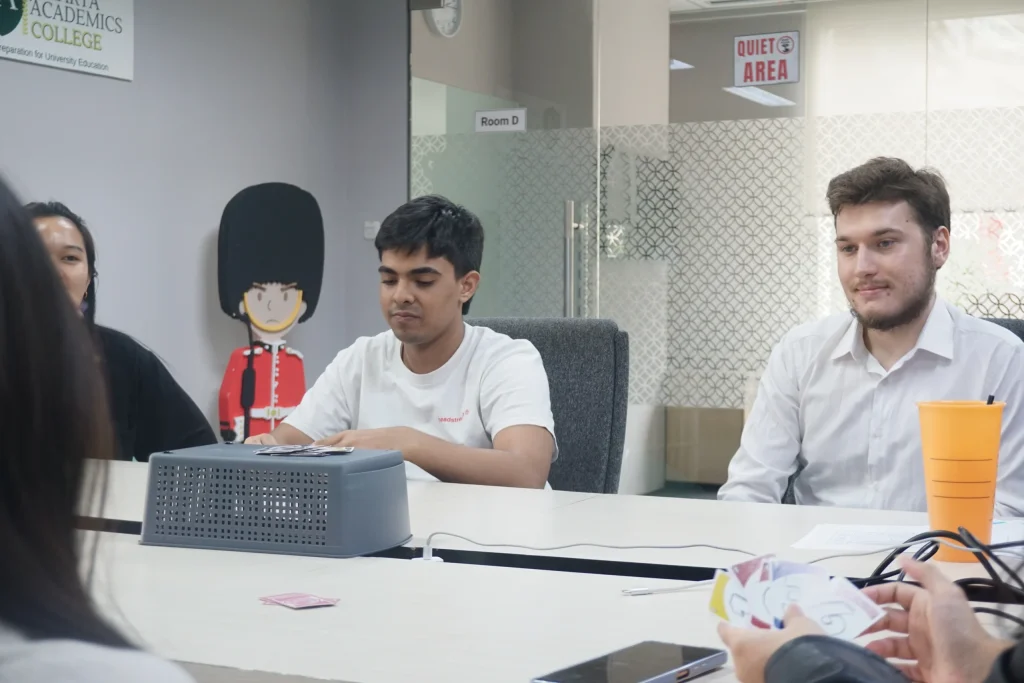
Unlike traditional foundation courses, the International Year One is credit-bearing and trusted by top universities worldwide. It equips students with the skills, confidence, and academic readiness to thrive at international universities.
Key Benefits of International Year One:
- Guaranteed entry to Year 2 of a bachelor’s degree* at a JA College university partner.
- Graduate with a full bachelor’s degree—your degree certificate will be the same as if you studied all years abroad.
- Smaller class sizes for better preparation compared to large university lecture halls.
- Hundreds of degree choices across top universities in the UK, Australia, and New Zealand.
- English for Academic Purposes (EAP)—accepted by universities in place of IELTS, ensuring smooth entry.
- Flexibility to decide—if you are unsure of your degree choice, you can explore subject modules first and finalize your course in the second year.
This program also allows students to start their degree locally in their home country before progressing abroad, making it cost-effective and less overwhelming for both students and families.
Subject Routes Available
Students can choose from six highly sought-after academic pathways:
- Accounting & Finance
- Business Management
- Computer Science
- Events Management
- Electrical & Electronic Engineering
- Law
Each route provides a strong academic foundation and progression opportunities to multiple degree courses at partner universities.
Our University Partners
The International Year One Programme is recognized by top-ranked universities worldwide, including:
- United Kingdom: Lancaster University, University of Bristol, University of Sheffield, University of Birmingham, and more.
- Australia: The University of Western Australia, RMIT University, Swinburne University of Technology.
- New Zealand: The University of Auckland, University of Otago, Massey University, University of Canterbury.
With such a wide network, students have access to some of the most prestigious institutions in the world.
JA College Jakarta and Bali: Your Starting Point
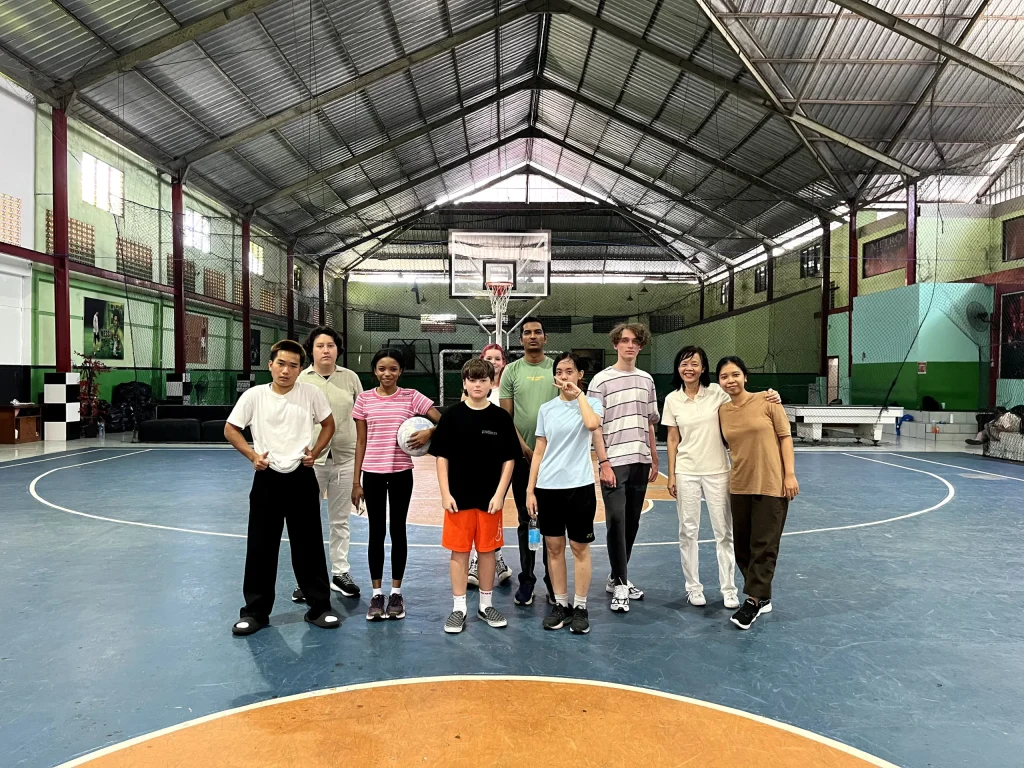
Students in Indonesia can begin their International Year One journey at JA College Jakarta or JA College Bali.
At both campuses, students benefit from:
- World-class curriculum aligned with university standards abroad.
- Experienced international and local faculty who guide students through both academic and personal development.
- Smaller class sizes that ensure individual attention and a supportive environment.
- Seamless progression pathways to partner universities in the UK, Australia, and New Zealand.
- Local support with global opportunities, so students can begin their degree at home and confidently continue abroad.
Whether in the capital city or on the serene island of Bali, JA College provides a safe, engaging, and academically rigorous environment for Indonesian students who dream of an international education.
The International Year One Programme is more than just a study option—it is a gateway to global opportunities. With guaranteed progression to top universities, flexible subject routes, and strong academic support, it is an excellent choice for students aiming to study abroad.
Through JA College Jakarta and Bali, Indonesian students can access this world-class program without leaving home immediately, giving them the confidence and preparation they need to succeed in their future studies and careers.
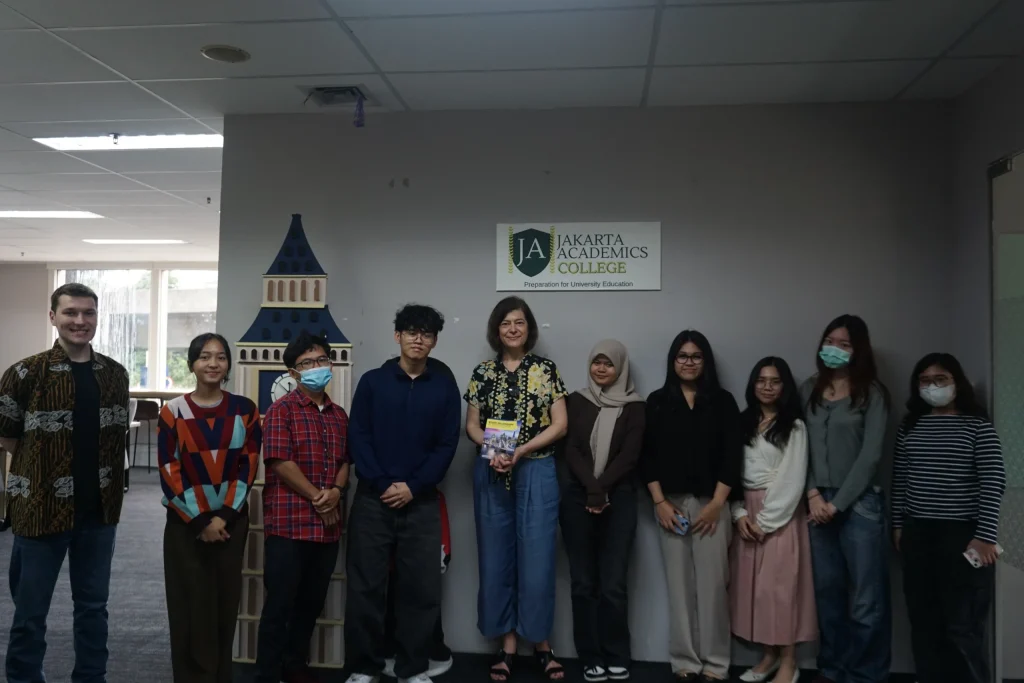
Affordable International School in Bali: Spotlight on JA College
Bali is no longer just a holiday paradise. Over the past decade, it has become a global hub for families, digital nomads, and expatriates looking to combine lifestyle with quality education. But here’s the challenge: international schools in Bali often come with hefty tuition fees, ranging anywhere from USD 5,000 to over 20,000 per year. For many families, that price tag is overwhelming.
This is where JA College Bali steps in. Positioned as the island’s first junior college, JA College offers a globally recognized pre-university education while remaining more accessible than Bali’s premium international schools. If you’re searching for a cheap international school in Bali without compromising quality, JA College deserves your attention.
The Landscape of International Schools in Bali
Bali has no shortage of international schools. From the eco-conscious Green School to well-established names like Canggu Community School and Australian Independent School, families have many choices.
However, tuition at these institutions is often high, as they follow the IB (International Baccalaureate) or other international curricula designed for K–12 education. For parents of teenagers preparing for university, enrolling in such schools can mean paying premium fees for years of secondary education before graduation.
JA College offers an alternative: focus purely on pre-university preparation while keeping costs manageable.
What is JA College?

JA College is Bali’s first junior college model, offering programs that bridge the gap between high school and university. It is internationally accredited through Pearson Edexcel, giving students access to two key academic tracks:
- A-Level Programme – The gold standard for university entry in the UK, Europe, and beyond. Students specialize in subjects like Mathematics, Sciences, Economics, and Literature.
- Foundation Programme – A fast-track route designed for students who want to transition quickly into universities in the UK, Australia, and other countries.
This makes JA College not just another “school,” but a springboard to global higher education.
Academic Approach: University-Style Learning

Unlike traditional international schools with rigid timetables, JA College runs on a seminar-style, university-inspired model.
- Mentorship over rote teaching – Instead of relying solely on classroom lectures, students work closely with academic mentors.
- Independent learning – Projects, discussions, and research build self-management skills.
- Critical thinking focus – Courses encourage debate, inquiry, and problem-solving—skills universities expect.
This learning approach helps students smoothly transition from the structure of school to the independence of university life.
Student Life & Campus
Located in Renon, Denpasar, JA College’s campus offers a safe, modern environment that balances academic focus with the island lifestyle Bali is famous for.
- Facilities: Equipped with classrooms, digital learning spaces, and student lounges.
- Daily rhythm: Imagine a morning philosophy seminar, followed by project work, then unwinding with sports or even surfing after class.
- Community size: Smaller cohorts mean more personalized attention, close peer connections, and a supportive learning environment.
For many international families, this setting is the perfect mix of rigor and lifestyle.
Global Pathways & Alumni Success
The ultimate goal of JA College is clear: university preparation. Graduates from JA College have secured places at respected institutions including:
- University of Reading (UK)
- University of Aberdeen (Scotland)
- Middlesex University (Dubai)
- Universities in Singapore, Australia, and beyond
JA College also provides hands-on support with university applications, visas, and accommodation planning, ensuring students (and their parents) don’t feel lost in the process.
Is JA College Really “Cheap”?
Here’s the key question: How affordable is JA College compared to other international schools in Bali?
- Premium schools (IB & full K–12 models): USD 10,000–20,000+ per year
- Affordable options (like GMIS or Montessori-based schools): USD 5,000–8,000 per year
- JA College (pre-university focus only): While tuition details aren’t publicly listed, its model suggests lower costs because students only pay for final secondary/pre-university years, not a full 12-year schooling journey.
In short, JA College is not “cheap” in the sense of low quality—but it is affordable relative to the broader Bali international school market, especially for families targeting university readiness rather than full K–12.
Why Choose JA College Over Other Schools?
Here are a few reasons families lean toward JA College:
- Direct pathway to global universities without paying IB or full high school tuition.
- Small, personalized community instead of crowded classrooms.
- Mentorship-driven learning that mirrors university life.
- Location in Bali’s cultural hub while still close to family-friendly areas.
- Balance of academics and lifestyle—students don’t just study, they thrive.
Tips for Parents Considering JA College
If you’re exploring JA College for your child, here are some practical steps:
- Visit the campus – See the environment and speak with staff.
- Ask about tuition and scholarships – Fees may vary depending on the program.
- Compare with other schools – Check how costs stack up against IB or Montessori schools.
- Talk to alumni or current parents – First-hand stories often give the clearest picture.
- Plan early – Pre-university programs move quickly, so entry timing matters.
Conclusion
For families searching for a cheap international school in Bali without sacrificing academic quality, JA College stands out. It isn’t just another school—it’s a launchpad for global universities, combining affordability with world-class qualifications and a lifestyle that only Bali can offer.
Whether your child dreams of studying in the UK, Australia, Singapore, or beyond, JA College provides a clear, affordable pathway to get there.
If you’re ready to explore, start with a campus tour and admissions consultation. Affordable, international-standard education in Bali might be closer than you think.

CAS Guide for Indonesian Students: How to Apply to UK Universities in 2025
If you’re an Indonesian student planning to study in the UK, understanding UCAS (Universities and Colleges Admissions Service) is essential. UCAS is the official platform used by students worldwide to apply for undergraduate degrees in the United Kingdom.
In this guide, we’ll explain what UCAS is, why it’s important, the key deadlines, and how to apply to UK universities through UCAS, including useful tips for a smooth application process.
What Is UCAS and Why Do You Need It?
UCAS is an independent organization that manages all university applications in the UK. Instead of applying separately to each university, you can apply to up to five courses through one online UCAS application. In 2024, UCAS handled nearly 3 million applications from over 750,000 students across the UK, EU, and internationally, including many from Indonesia.
With UCAS, you can:
- Apply to UK universities online
- Request interviews (some can be conducted online)
- Track your application status
UCAS Application Deadlines You Must Know
There are four major UCAS deadlines each year. Missing them can limit your university options or delay your studies:
| Date | Details |
| October (typically 15 October) | For courses at the University of Oxford, University of Cambridge, or most medicine, dentistry, and veterinary science courses. |
| 31 January | The main deadline for most undergraduate courses. Applications submitted by this date will be given equal consideration. |
| March | For certain art and design courses with later deadlines. |
| 30 June | The final deadline for most courses. Applications after this date will enter UCAS Clearing, meaning your top-choice course may no longer be available. |
Tip: Apply as early as possible to secure your preferred university, prepare your visa, and arrange accommodation without stress.
How to Apply to a UK University via UCAS
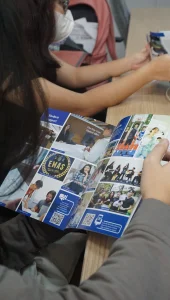
Here’s a step-by-step overview of what your UCAS application will include:
- Personal Details
Basic information like your name, contact details, and nationality. - Additional Information
Includes residency status and other supporting info, especially important for international students. - Student Finance
Not always relevant for international students, but must still be completed. - Course Choices
You can apply to up to five different courses at the same or different universities. - Education Details
List your academic background including A Levels, foundation programs, or equivalent qualifications. - Personal Statement
Arguably the most important part of your application. It’s your chance to explain:
- Why you want to study in the UK
- Why you chose the course
- What makes you a strong candidate
- Employment (if applicable)
Mention any relevant work experience, internships, or part-time jobs.
Don’t leave your UCAS application to the last minute. A rushed application is obvious and can hurt your chances.
Understanding Entry Requirements and UCAS Tariff Points
Each UK university and course has specific entry requirements. Some use UCAS tariff points, a system that converts qualifications (like A Levels, BTECs, or other certificates) into points.
For example:
- A Level A* = 56 points
- A Level A = 48 points
- A Level B = 40 points
You must meet the minimum point requirement for the course you’re applying to. Always check the specific requirements on the university’s website or the UCAS course search tool. You can also check through UCAS Tariff Calculator:
Writing a Strong Personal Statement
Your personal statement is where you showcase:
- Your passion for the subject
- Your academic achievements
- Career aspirations
- Any extracurriculars, leadership, or volunteer experiences
Make it clear, focused, and tailored to your chosen courses. Avoid using templates or AI tools without editing, it should sound like you.
Tips for Indonesian Students Applying Through UCAS
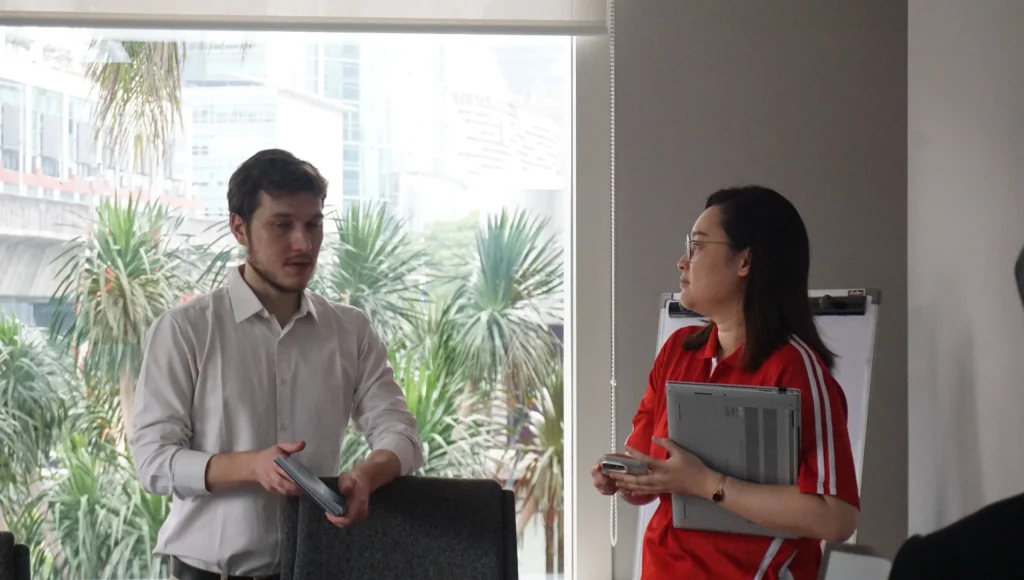
At JA College, we guide both A Level and Foundation Programme students through the entire UCAS application process.
Here’s how we help:
- Ensure all UCAS sections are correctly filled
- Review and polish your personal statement
- Help gather required academic documents
- Provide guidance on visas, student accommodation, and pre-departure preparation
We don’t just support students applying to UK universities, our team assists with global university applications as well. We’re here to make sure you don’t miss a single step.
If you’re serious about studying in the UK, understanding UCAS is not optional, it’s essential. From choosing the right course to submitting a polished application, UCAS is your gateway to a successful academic journey in the UK.
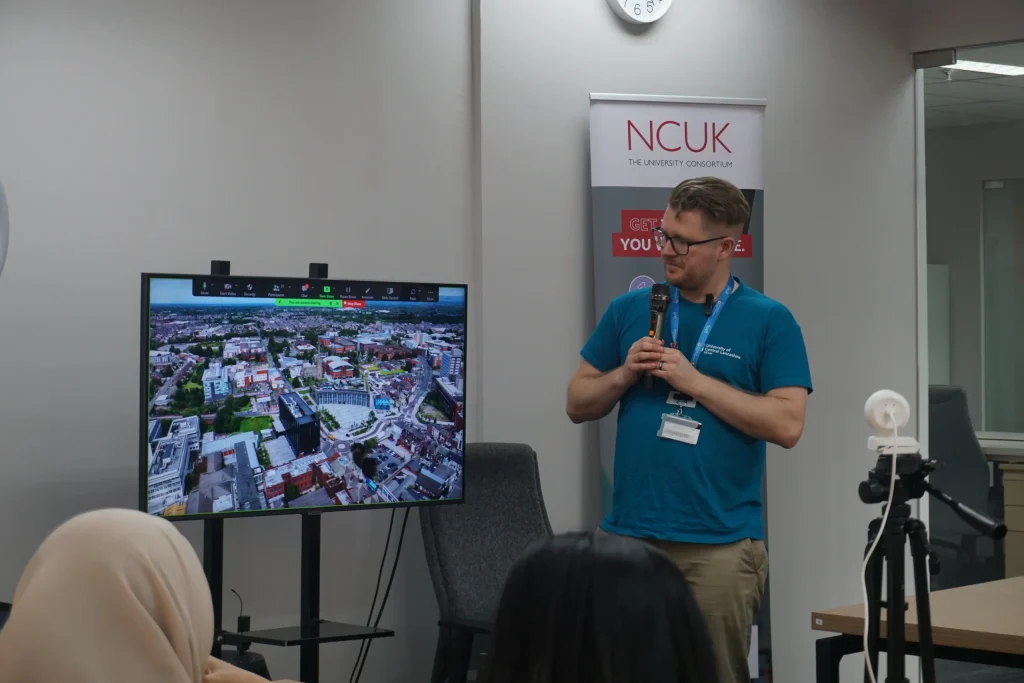
Can I Apply for University With Just A Levels and No IGCSE?
If you’re wondering whether you can get into university with just A Levels and no IGCSEs, you’re not alone. With students following increasingly diverse educational paths, this is a common and perfectly valid question. The good news? The answer is yes, in many cases but there are important caveats to consider.
Let’s break it all down.
Understanding the UK University Admissions Landscape
UK universities typically expect applicants to have completed GCSEs or IGCSEs, especially in English and Mathematics, followed by at least two or three A Levels. These qualifications provide a foundation in core subjects and indicate a student’s readiness for degree-level work.
However, there is no blanket rule across all universities. Entry requirements vary significantly by institution, course, and applicant background.
Can You Apply to University With Just A Levels?
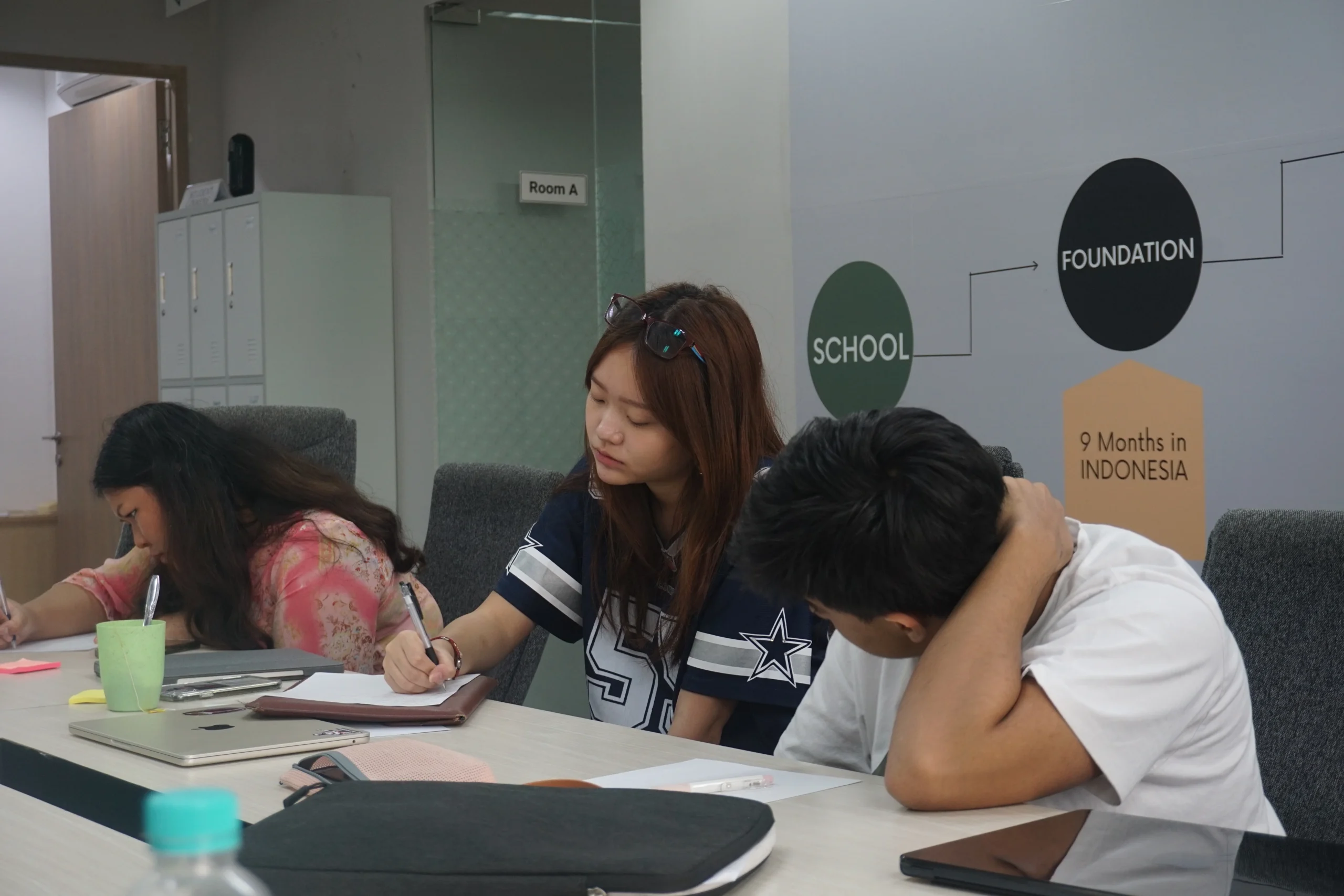
Yes, many universities do accept students with A Levels even if they haven’t taken IGCSEs. This is especially true if:
- You studied under a different curriculum during your early secondary years.
- You hold equivalent qualifications from your home country.
- You are applying for courses that do not specifically require GCSE prerequisites.
Some students pursue international programmes like the IB Middle Years programme (MYP) instead of GCSEs, which universities often accept as valid prior learning.
Why IGCSEs May Still Matter
While A Levels carry more weight in university decisions, some institutions still expect minimum grades in core subjects at the IGCSE level, especially in English and Mathematics.
For example:
- STEM courses might require Maths at IGCSE level if it’s not part of your A Levels.
- Some courses require a IGCSE science subject, even if you’re taking different A Level subjects.
Top-tier universities, such as Oxford or Cambridge, often expect a full academic record including strong IGCSE results.
However, if you’re applying to less competitive universities and your A Level results are strong, you may not need IGCSEs at all.
Alternatives to IGCSEs That Universities Accept
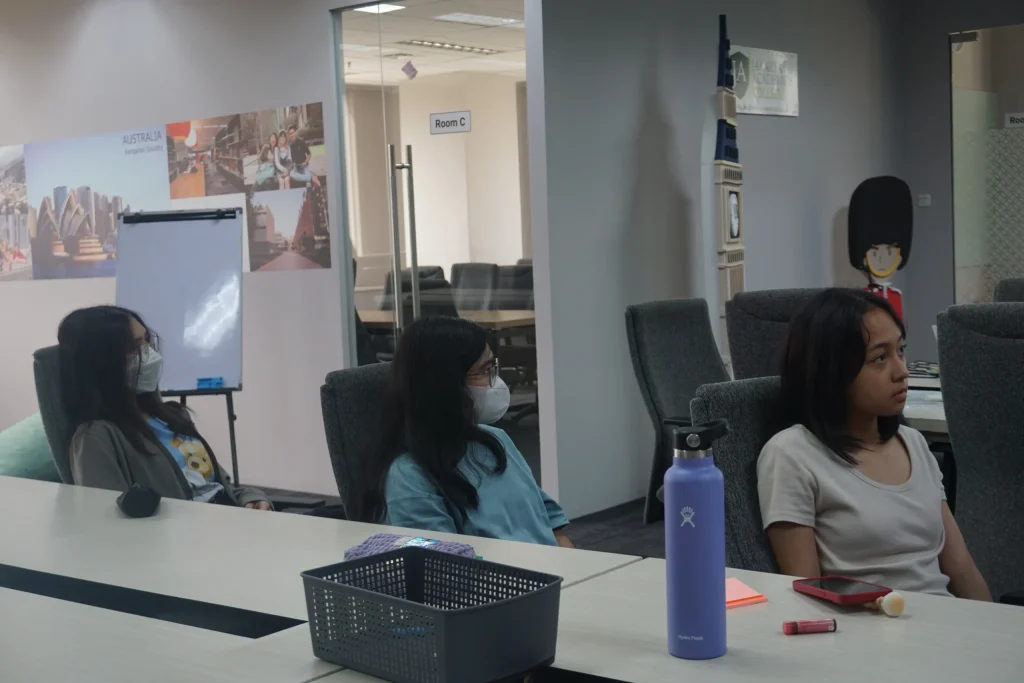
Not everyone follows the traditional British curriculum. Here are common alternatives accepted by many UK universities:
- IB MYP (Middle Years programme)
- Cambridge Pre-U
- Scottish National 5s or Highers
- Caribbean CAPE
- U.S. High School Diploma + APs
- Other country-specific certifications
Universities may also accept functional skills qualifications or foundation year programmes to meet English or Maths requirements.
International Students: Different Rules Apply
If you’re applying from outside the UK, universities often evaluate your national qualifications and compare them with the UK system.
Key considerations include:
- Equivalency: Does your local curriculum match the level of GCSEs?
- English proficiency: Most UK universities require proof through IELTS, TOEFL, or equivalent exams.
- NARIC (now UK ENIC): Credential evaluations that assess your qualifications against UK standards.
Many international students successfully apply to UK universities every year without IGCSEs, using their country’s standard qualifications instead.
What to Do If You Don’t Have IGCSEs
If you skipped IGCSEs and are now preparing to apply to university, here are some strategic steps:
- Score well in your A Levels – high grades can often compensate.
- Take IGCSEs or equivalents independently in English or Maths if required.
- Enrol in a foundation year at JA College to meet missing prerequisites.
- Contact admissions offices directly – many will offer tailored advice.
Admissions teams are often understanding, especially if you have a solid academic explanation or were educated in a different system.
Success Stories and Real-World Advice
Many of JA College students shared how they got into a top ranked university with just Foundation programme or A Levels and not taken IGCSEs. Their application was accepted based on a strong Foundation programme or A Level results.
Universities care about academic potential, not just tick-box qualifications.
How to Strengthen Your University Application Without IGCSEs
Even if you lack IGCSEs, you can still impress universities with:
- A compelling personal statement showing your passion and motivation
- Strong reference letters from teachers or mentors
- Relevant work experience, volunteering, or extracurricular achievements
- A well-prepared portfolio or admissions test, if required by your course
Ultimately, it’s about proving that you’re ready to thrive in higher education.
Can you apply for a university with just A Levels and no IGCSEs? Absolutely. But it’s essential to research your target universities’ entry requirements and be prepared to demonstrate your academic readiness in other ways.
Always reach out to admissions offices if you’re unsure, they’re there to help. With the right approach, you can still pursue your degree dreams, IGCSEs or not.
Tip: Bookmark this guide or share it with someone who’s wondering the same!
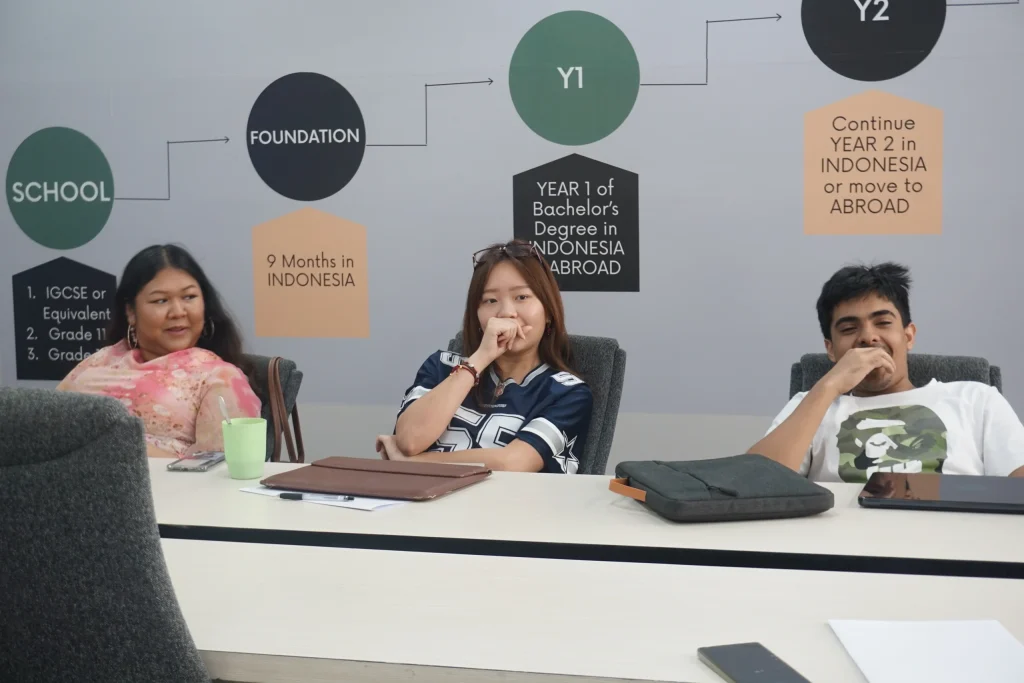
A Level in Bali: Discover the Future of Education at JA College
If you’re searching for an A Level school in Bali, you’re in luck—there are many options. But what if we told you that the future of education is already happening at one standout institution? Meet JA College Bali, the leading junior college that fuses UK’s prestigious A Level curriculum with the power of artificial intelligence to redefine learning.
Why Bali is Becoming a Hub for A Level Education
Bali is no longer just a travel destination—it’s becoming an academic haven for international students seeking world-class education in a peaceful, culturally rich setting. Here’s why more students are choosing to take their A Levels in Bali:
- Global Perspective: Students from around the world gather here, creating a unique, multicultural learning environment.
- Balanced Lifestyle: The relaxed Balinese atmosphere promotes mental well-being alongside academic achievement.
- International Curriculum: Top schools offer the UK curriculum, opening pathways to universities globally.
Introducing JA College Bali
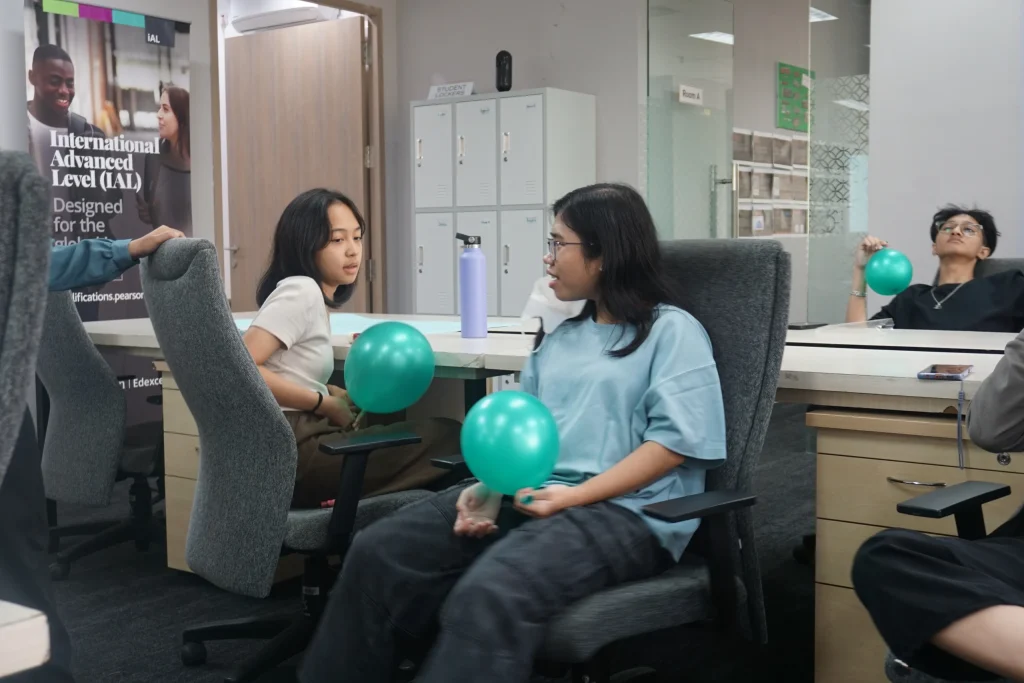
At JA College Bali, we don’t just follow a syllabus, we craft the future of education. We’re not a typical high school. As a junior college, we specialize in preparing students aged 15–19 to excel at leading universities around the world.
Approved International Curriculum:
We follow the UK’s globally respected A Level pathway with subjects tailored to your university goals.
AI-Enhanced Learning:
Through years of research and real-world implementation, we integrate AI tools to boost academic performance across all subjects.
What Makes JA College Bali Different?
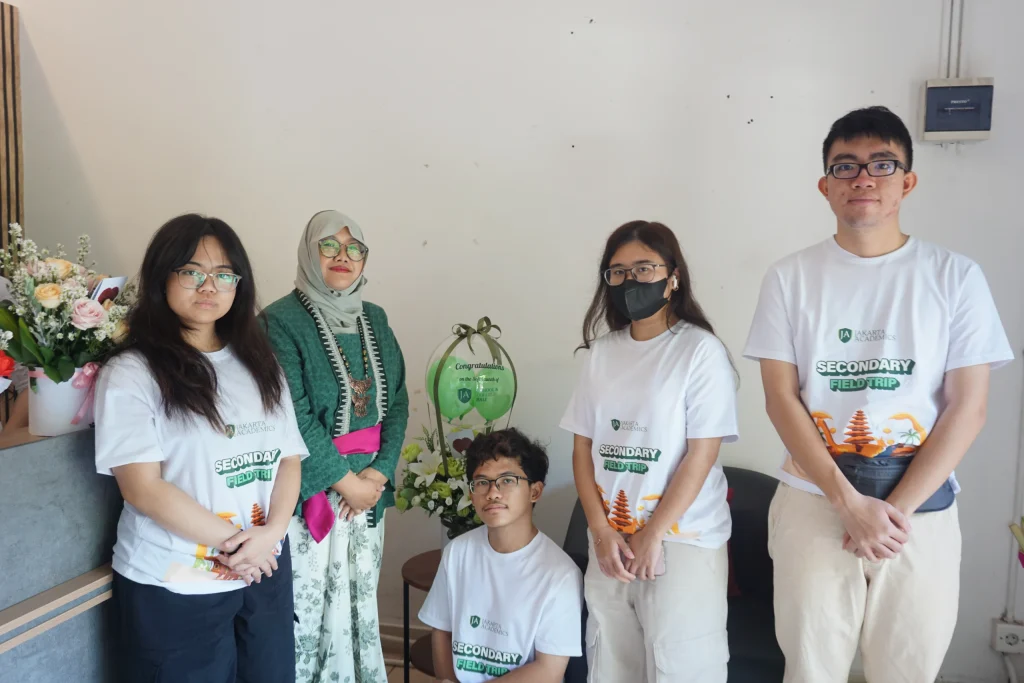
While many schools offer A Levels in Bali, here’s why JA College stands apart:
- The AI Touch:
Our teachers lead the class, but AI supports every lesson with personalized feedback, learning analytics, and smart assessments. - Only 6 Hours of Learning Per Day:
We focus on deep, effective learning, not long hours. Our AI-assisted curriculum maximizes retention and engagement in just 6 hours. - No Uniforms, No Limits:
Learning should reflect real life. That’s why our students enjoy a university-style environment with freedom, responsibility, and real outcomes. - Direct University Access:
Want to study at Oxford, Monash, NUS, or TU Delft? We regularly host university representatives for consultations, Q&A sessions, and application guidance. - Real-World Projects:
From launching health-tech apps to starting businesses, our students graduate with portfolios that showcase creativity and leadership—not just test scores.
The Power of A Levels with AI Integration
At JA College Bali, AI isn’t just a buzzword, it’s a core tool in our classroom:
- Performance Analytics: Students and teachers receive real-time progress reports.
- Smart Learning Paths: Content adapts to your strengths and areas for growth.
- AI Writing Assistants & Simulations: From essays to lab work, students learn with advanced digital tools.
And the results speak for themselves.
Where Our Graduates Are Now
Thanks to our future-focused model, our alumni are thriving across the globe:
University Destinations Include:
- 🇬🇧 United Kingdom
- 🇦🇺 Australia
- 🇳🇿 New Zealand
- 🇸🇬 Singapore
- 🇺🇸 United States
- 🇳🇱 The Netherlands
- 🇫🇷 France
- 🇯🇵 Japan
- 🇲🇾 Malaysia
Our students are now studying medicine, law, business, computer science, and design, many with scholarships.
Is JA College Right for You?
We might be the right fit if:
- You want more than just grades, you want real skills.
- You’re excited about technology, innovation, and freedom.
- You’re aiming for top-tier universities and need the right launchpad.
You won’t find long morning assemblies or standard-issue uniforms here. You’ll find mentors, friends, and a future-facing education.
How to Join the Future of Learning in Bali
Ready to start your journey? Our team is here to help you craft the academic future you deserve. Choosing the right school isn’t just about textbooks, it’s about vision. At JA College Bali, we believe in shaping thinkers, creators, and leaders. A Level in Bali has never looked this innovative, this personal, and this effective.
Come for the curriculum. Stay for the future. Welcome to JA College Bali, where education meets innovation.

Uniprep Indonesia: Your Gateway to World-Class Universities with Jakarta Academics College
The journey to a world-class university doesn’t begin with college applications, it starts with preparation. For Indonesian students dreaming of studying abroad, the path can feel overwhelming. That’s where Uniprep Indonesia, in partnership with Jakarta Academics College, comes in.
With campuses in Jakarta and Bali, and a strong track record of student success, Jakarta Academics College offers a globally focused academic foundation through the Uniprep Indonesia program empowering students with the skills, knowledge, and confidence to thrive in top universities across the globe.
What Is Uniprep Indonesia?
Uniprep Indonesia is a university preparation program designed to help Indonesian students meet the academic and admissions requirements of international universities. Whether students plan to study in the UK, Australia, Europe, or Asia, Uniprep ensures they are equipped with:
- Globally recognized qualifications
- Academic and personal development support
- University application and interview coaching
- Critical thinking and soft skill mastery
It’s not just about getting accepted—it’s about thriving abroad.
Delivered by Jakarta Academics College
Jakarta Academics College is the proud provider of the Uniprep Indonesia program. Our mission is to deliver future-ready education that prepares students for real-world academic challenges and opportunities.
Campus Locations
- Jakarta: A vibrant academic hub for ambitious students
- Bali: A peaceful, globally connected learning environment
Academic Programs

We offer:
- A Level (Pearson Edexcel) – a globally respected pre-university qualification
- Foundation Programmes – accelerated university pathways
- Junior College – focused university prep for upper secondary students
AI-Enhanced Learning for Global Success
Jakarta Academics College goes beyond traditional teaching. We integrate AI in education to boost student performance across key subjects:
- Math
- Chemistry
- Biology
- English
- Business Studies
With the support of AI:
- Students receive real-time, personalized feedback
- Coaches (our teachers) track performance data to guide improvement
- Learning becomes more engaging, targeted, and efficient
The result? Higher exam scores, greater confidence, and a deeper understanding of complex topics.
Our Global Reach: University Partners and Alumni

Jakarta Academics College has built partnerships with more than 70 international universities and continues to expand its global network. Our alumni are currently studying in:
- The United Kingdom
- Australia
- Singapore
- New Zealand
- United States
- Malaysia
We provide end-to-end support from university selection to applications, interviews, and visa guidance.
Why Parents and Students Trust Jakarta Academics College
Here’s what sets Jakarta Academics College apart:
- International Curriculum: Pearson Edexcel A Level & foundation options
- AI-Powered Learning: Advanced technology with human guidance
- Global Recognition: Trusted by top universities around the world
- Success Stories: Alumni placed in competitive universities worldwide
Choosing Uniprep through Jakarta Academics College is more than an academic decision, it’s a future defining one. We’re here to guide Indonesian students toward success at leading universities, blending international curriculum, AI-enhanced learning, and personal coaching into one powerful experience.
If your dream is to study abroad, let Jakarta Academics College be your launchpad to a global future.

The Positive of AI for Student Learning: A New Era in Education
Artificial Intelligence is no longer the future, it’s the present. Across classrooms and online platforms, AI is transforming how students learn, study, and achieve their academic goals. When implemented correctly, the positive of AI for student education is undeniable.
From personalized feedback to efficient exam preparation, AI is revolutionizing learning experiences across the world. But what exactly are the benefits, and how can students take advantage of them?
Personalized Learning Paths
Every student learns differently. Some grasp concepts quickly, while others need more time and practice. AI helps tailor education by:
- Adapting to individual learning speeds
- Recommending customized resources
- Identifying and focusing on weak areas
With AI, students are no longer stuck in one-size-fits-all learning models—they move at their own pace and style.
Instant Feedback and Support
One of the key positives of AI for students is instant feedback. Instead of waiting days for results or corrections, AI tools can:
- Correct grammar, spelling, and math problems in real time
- Offer explanations and tips for improvement
- Guide students through problems step-by-step
This immediate support helps students build confidence and correct mistakes early.
Enhanced Focus and Efficiency
AI-powered platforms often use gamification, reminders, and smart scheduling to keep students engaged. Benefits include:
- Better time management through AI study planners
- Reduced procrastination via goal tracking
- Focused learning through distraction-free environments
This allows students to study smarter, not longer.
Mastering Difficult Subjects with Ease

Whether it’s solving complex algebra problems or understanding organic chemistry, AI assists students in mastering difficult subjects by:
- Providing visual simulations and interactive exercises
- Offering multiple ways to explain one concept
- Repeating topics until mastery is achieved
AI breaks down hard subjects into manageable, student-friendly lessons.
Preparing for Exams and Real-World Skills
AI doesn’t just help with grades—it prepares students for success beyond the classroom. Students benefit from:
- Adaptive testing that mimics real exam conditions
- Critical thinking challenges tailored to career paths
- Language learning and communication practice
As a result, students feel more prepared not only for tests but for university and career challenges.
Support for Teachers and Better Learning Outcomes

AI doesn’t replace teachers—it empowers them. With the help of AI, educators can:
- Track student progress in real-time
- Identify who needs help and where
- Spend more time mentoring, less time grading
This collaboration between human guidance and AI support leads to higher student performance.
The positive of AI for student education is profound. From personalization to productivity, AI is enhancing learning in ways never imagined before. When combined with good teaching and motivation, AI becomes a powerful ally in every student’s journey.
At schools like Jakarta Academics College, AI is already being used to help students achieve better grades and prepare for top universities around the world. If you’re a parent or student looking for smarter ways to learn, now’s the time to explore the power of AI in education.

AI in School: How Jakarta Academics College Is Preparing Students for Global Success
Education is evolving and fast. With the integration of AI in school, classrooms are no longer just about textbooks and lectures. They’re becoming interactive, adaptive, and personalized learning environments. At Jakarta Academics College, we embrace this transformation.
Located in both Jakarta and Bali, our Junior College is designed for students aiming to study abroad. We offer A Level and Foundation programmes with a strong focus on university preparation. And now, with AI in the mix, our students are achieving even more.
Why AI in School Matters Today
Artificial Intelligence is no longer just a buzzword. It’s reshaping how students learn by offering:
- Customized learning paths based on each student’s strengths and weaknesses
- Faster comprehension through interactive feedback and suggestions
- Higher retention rates, especially in complex subjects like Chemistry and Math
In a world where speed and understanding are crucial, AI gives students the edge they need.
How Jakarta Academics College Integrates AI in Learning

At Jakarta Academics College, we believe that technology should support, not replace teachers. That’s why we’ve built a learning system where AI enhances the classroom experience under the guidance of qualified educators, whom we proudly call “coaches.”
Subjects Empowered by AI:
- Chemistry: Visual simulations and real-time problem-solving
- Math: Step-by-step personalized tutoring
- English: Grammar and essay feedback in seconds
- Biology: Interactive diagrams and adaptive quizzes
- Business: Case study analysis and data-driven simulations
AI helps both students and teachers:
- Track progress in real time
- Identify learning gaps
- Reinforce concepts based on student needs
Real Results: Improved Exam Scores and University Readiness
Since implementing AI, we’ve seen measurable success:
- Higher exam scores across A Level and Foundation courses
- Improved focus thanks to adaptive and engaging content
- Smarter study habits—students learn how to learn
Our alumni are now thriving in top universities around the world. And we’re proud to have active partnerships with over 70 global universities, helping students secure their international education journey.
Building the Future: AI, Teachers, and Global Partnerships
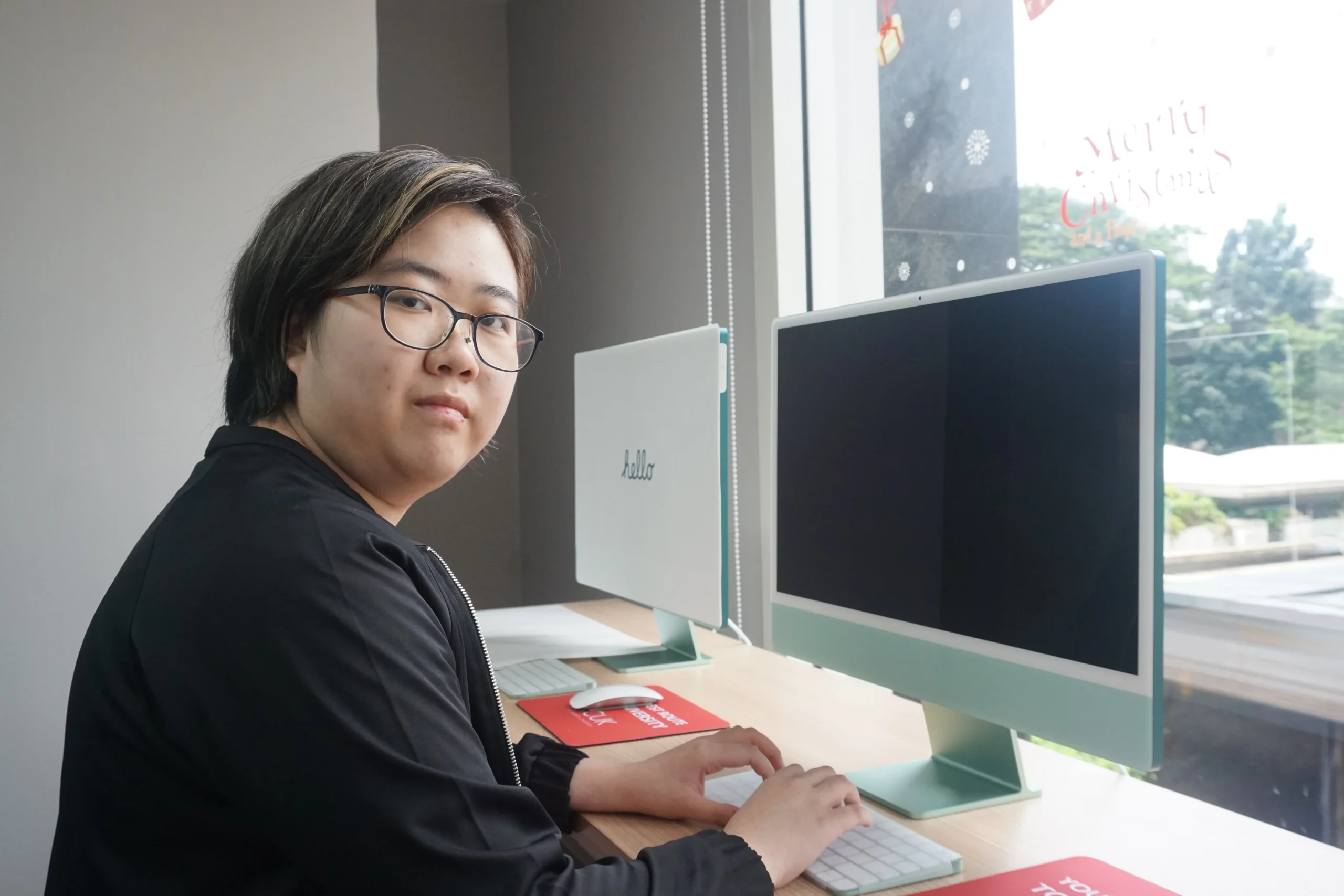
AI is a tool, our teachers remain the heart of learning. We call them “coaches” because they guide, mentor, and ensure that students stay on track, motivated, and challenged.
Together, AI and human expertise make learning smarter, not harder. Through this synergy, we prepare students not only to pass exams but to excel in the global academic world.
AI in school isn’t just a trend, it’s the future of meaningful, personalized education. At Jakarta Academics College, we’re leading the way by merging technology with mentorship to help students reach their highest potential.
If you’re looking for a future ready education in Indonesia, with real global outcomes, discover how AI supported learning at Jakarta Academics can make the difference.

Top World Medical University For Indonesian Students: St. George’s University
Choosing the right path to become a doctor is a big decision. Whether you’re finishing A-Levels or considering a foundation programme, this guide will help you understand your options from foundation programmes in Indonesia to top medical universities like St. George’s University.
Foundation Programme in Indonesia
A nine-month English taught pathway for medicine, dentistry, and surgery degrees at universities in the UK, Australia, Montenegro, and the Caribbean
- Gadjah Mada University (UGM – Yogyakarta): Offers a 5.5-year International Undergraduate Medicine Programme with English instruction, accepting A-Level or foundation qualifications, strong clinical exposure and community work.
- Jakarta-based foundation providers: Jakarta Academics College supports A-Level and foundation programme graduates aiming for top universities overseas .
A-Level vs. Foundation: Choosing the Right Path

A-Level
- Globally recognized, strong academic preparation in Biology, Chemistry, Math/Physics
- Straight entry to competitive UK, US, and Caribbean med schools
Foundation Programme
- Ideal for students who need curriculum bridging or international prep
- Highly accessible in Indonesia with programs taught in English
Which suits you?
- Choose A-Levels if aiming for direct admission abroad
- Opt for a foundation year if you need extra support in academic English or subject knowledge before heading overseas
Spotlight: St. George’s University A Truly Global Medical School
Overview
- Founded in Grenada in 1976, with campuses and clinical training across Grenada, the UK, US, and Canada
- Program structure:
- Years 1–2 (Basic Sciences): on-campus in Grenada or UK (Newcastle)
- Years 3–4 (Clinical): rotations at SGU-affiliated hospitals in the US, UK, Canada, and Grenada
Clinical outcomes and exams
- 95% U.S. residency placement over the past 5 years
- Largest Caribbean provider of doctors into first-year U.S. residencies
Accreditation & Recognition
- Fully accredited by Grenada Medical Council (WFME/NCFMEA-recognized)
- Approved for clinical rotations in NY, NJ, CA, FL and recognized by international councils
Student Success Story: Isabel’s Journey with JA College

“JA College provided personalized support… helped me identify the most suitable university and course… I chose St. George’s University School of Medicine… unique opportunity to study across three campuses… dedicated exclusively to medicine… Grenada campus is stunning after all, who wouldn’t want to study on a beautiful beach?” — Isabel Tramp
- Isabel completed foundation programme at JA College (Jakarta), then applied to SGU
- She benefits from one-on-one mentoring, helping secure acceptance into SGU’s MD programme
- This pathway exemplifies how Indonesian foundation programme + JA College support can lead to global medical education
Why Choose SGU After A-Level/Foundation in Indonesia?
| Benefit | Description |
| Flexible term starts | August, January, April |
| Global campuses | Basic Sciences in UK or Grenada, Clinical rotations in US/Canada/UK |
| Strong clinical recognition | Approved by multiple US state boards; 1,035+ US residencies in 2025 |
| Diverse and supportive community | Over 23,000 alumni practicing in 50+ countries |
| Beach & city life | Beautiful Grenada campus + global urban clinical sites |
Practical Tips: A‑Levels, Foundation, & SGU Application
- Focus on core A-Level subjects: Biology & Chemistry essential; Math/Physics beneficial
- Select a strong foundation path: Choose A Level or Foundation programme for international academic readiness
- Check SGU deadlines: Rolling admissions with three term starts
- Boost your profile: Gain clinical or volunteer experience; prepare strong personal statements
- Plan finances: SGU tuition; seek scholarships via foundations or JA College support
Whether you’re finishing A-Levels or exploring foundation programmes in Indonesia, the journey to becoming a doctor is within your reach. Institutions like St. George’s University offer a globally recognized MD pathway with flexible intakes, multi-country clinical training, and excellent U.S. placement rates. With support from JA College, student Isabel exemplifies how a clear, guided path can lead to real success.
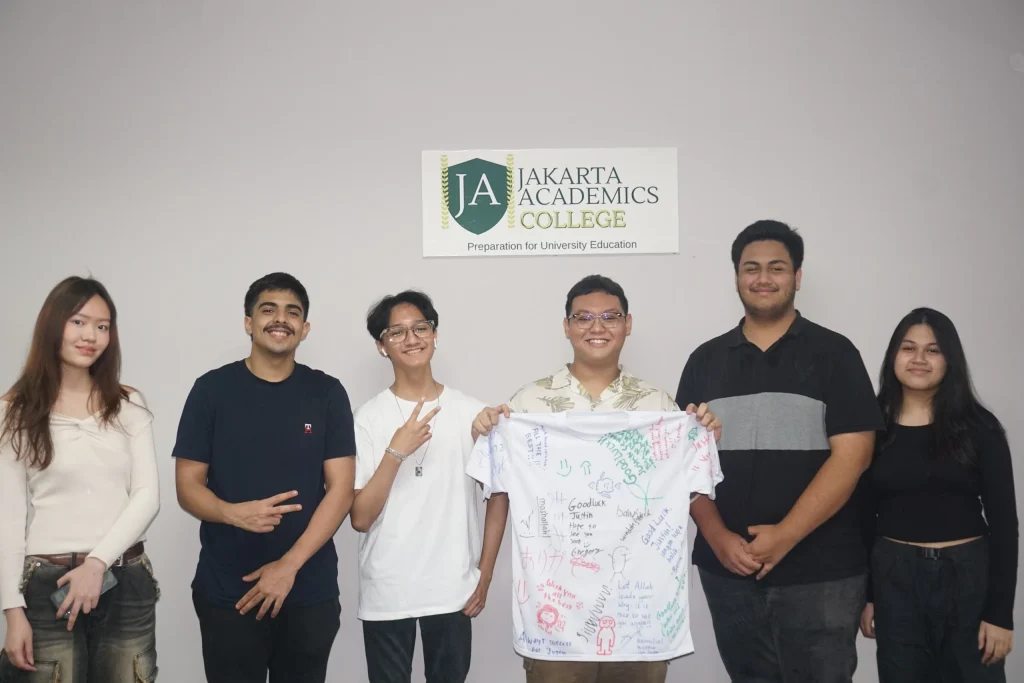
What Should I Do After IGCSE?
Finishing IGCSE is a major milestone—and you’re probably wondering, “What’s next?” Whether your goal is to continue studying in Indonesia or go abroad, this guide will help you navigate the best path forward.
Choices After IGCSE
You basically have two main directions:
- Continue in Indonesia (national or international routes)
- Study abroad (with A Level or Foundation programs)
To make sure you’re making informed choices, let’s explore both paths in detail.
1. Stay in Indonesia: A Level or National Curriculum
A Level in Indonesia
- What it is: International qualification recognized globally.
- Why choose it: Opens doors to top Indonesian universities’ International Class (e.g., UI International, ITB International, UGM International).
- Benefits:
- Smooth transition from IGCSE with a consistent international curriculum
- Strong preparation for overseas universities
- Option to study at top local universities in the international track
- Smooth transition from IGCSE with a consistent international curriculum
National Curriculum
- What it is: Indonesia’s standard high school pathway (e.g. SMA/SMAK/SMU).
Why choose it:
- Meets eligibility criteria to apply to all Indonesian state universities
- Some subject familiarity for IGCSE graduates, though adaptation to national methods and language is needed
- Tips:
- You can take both A Level and the national curriculum simultaneously at JA College.
- JA College offers:
- Dual program support (International and National Curriculum)
- University advice & admission preparation
- Dual program support (International and National Curriculum)
- You can take both A Level and the national curriculum simultaneously at JA College.
2. Planning to Study Abroad? Consider A Level or Foundation
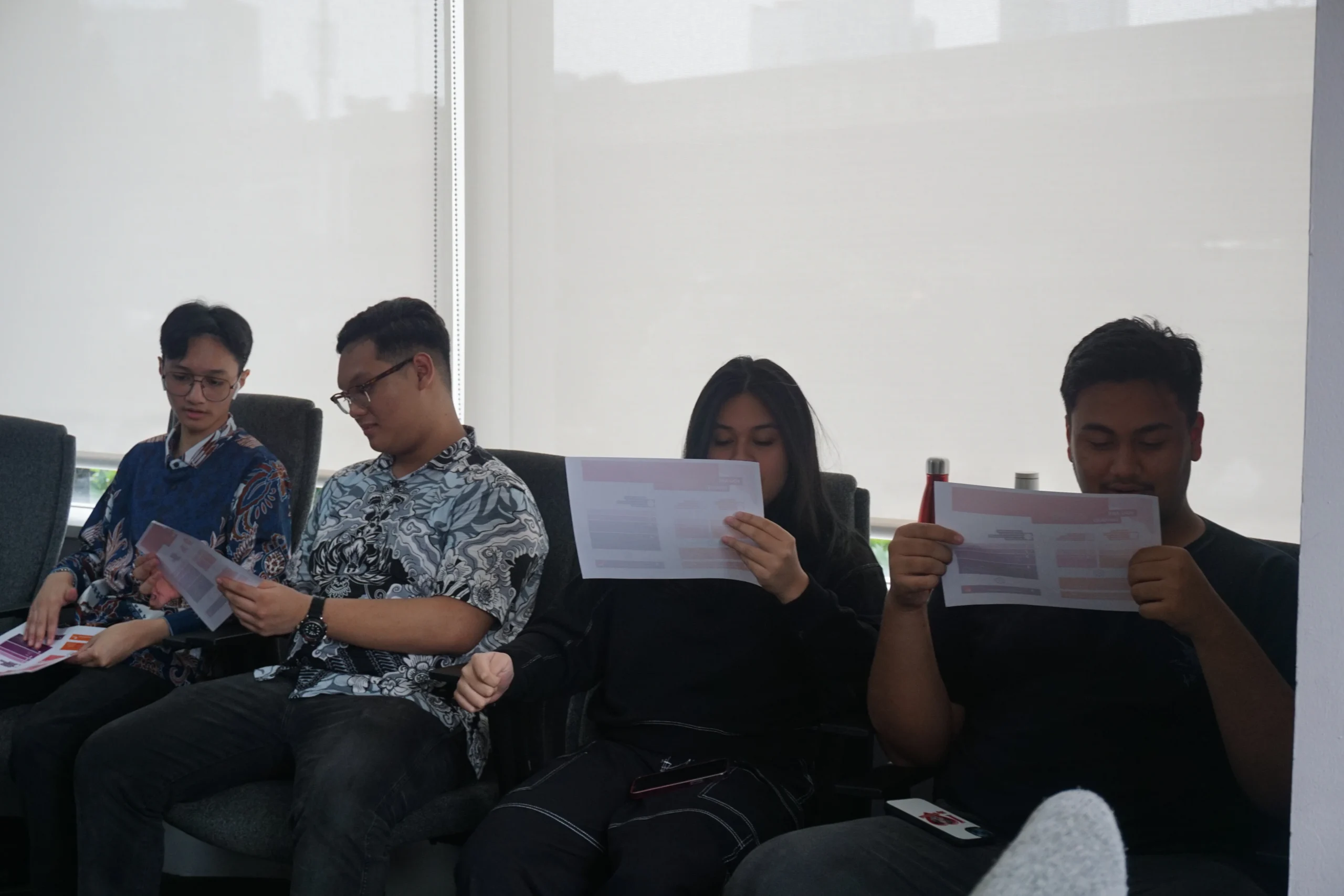
A Level
- Globally recognized qualification accepted by universities in the UK, Australia, Singapore, US, Canada, and beyond
- Comprehensive preparation for bachelor’s degrees in medicine, engineering, business, and more
Foundation Programme in Indonesia
- One-year intensive programs designed to prepare you for global universities
- Offered in English, covering academic subjects and study skills
- Local foundation centres partner with universities in the UK, Australia, Canada, etc.
Pros of choosing Foundation:
- Smoother academic transition
- Tailored to international university requirements
- Often includes guaranteed progression to partner universities
Why Choose JA College?
Already trusted by Indonesian students, JA College offers:
- Campuses in Jakarta and Bali
- Fully supported A Level and Foundation programmes
- Expert guidance on university applications
- Regular informational events and university fairs
Ongoing mentorship until you start university
Global Alumni Success

Our students go on to study across the world, including:
- Australia
- United Kingdom
- Malaysia
- Singapore
- United States
- Scotland
- Netherlands
- France
- Dubai
These success stories demonstrate that both A Level and Foundation routes via JA College can lead to top-tier universities abroad.
Quick Comparison Table
| Route | Accepted Locally | Accepted Internationally | Classroom Language |
|---|---|---|---|
| A Level in Indonesia | International programs at UI, ITB, UGM | Top universities worldwide | English |
| National Curriculum | All local universities | Limited unless complemented | Bahasa Indonesia |
| Foundation Programme | Varies by provider | UK, Australia, Canada, US, etc. | English |
Final Tips After IGCSE
- Decide based on your goals
- Want to stay in Indonesia? Both national and international paths work.
- Dreaming of overseas study? Go with A Level or Foundation.
- Want to stay in Indonesia? Both national and international paths work.
- Evaluate teaching quality
- Choose schools like JA College that have proven track records and strong academic support.
- Plan your time smartly
- A Level often takes 1–2 years; foundation is typically 1 year.
- Prepare for requirements
- A Level: focus on subjects like Biology, Chemistry, Physics, Math.
- Foundation: ensure English fluency (IELTS/TOEFL) and strong math/science basics.
- A Level: focus on subjects like Biology, Chemistry, Physics, Math.
- Tap into mentorship
- Look for guidance on university selection, applications, interviews, visa, and scholarships.
- Look for guidance on university selection, applications, interviews, visa, and scholarships.
Conclusion
After IGCSE, your next move whether A Level in Indonesia, national curriculum, or a Foundation programme should align with your goals:
- Aim to stay local? Combine A Level and national routes at JA College.
- Want to go global? Choose A Level or Foundation to prepare for top universities worldwide.
JA College (Jakarta & Bali) offers tailored support, global pathways, and an alumni network that spans the globe.

Foundation Program to Enter University in Australia: Your Gateway Starts with Jakarta Academics College
For many international students especially from Indonesia the dream of studying at a top Australian university begins with a strong academic bridge: the foundation program.
If you’re asking, “What is a foundation program to enter university in Australia?” you’re already on the right path. Let us guide you step by step, and introduce how Jakarta Academics College, with branches in Jakarta and Bali, can be your launchpad to global education success.
What Is a Foundation Program?
A foundation program is a preparatory course designed for international students who need extra academic or English language support before entering an undergraduate degree in Australia.
Think of it as a one-year university pathway that equips you with the skills, confidence, and qualifications needed for admission into top-tier Australian universities.
Why Choose a Foundation Program for Australian Universities?
Australia has strict university entry requirements, and high school graduates from Indonesia may not always meet them directly. That’s where a foundation program steps in.
Key Benefits:
- Guaranteed university entry upon successful completion
- Focused preparation in subjects like business, science, or IT
- English language development and academic writing skills
- Smooth transition to university life in Australia
- In many cases, direct progression to Group of Eight universities like the University of Sydney or Monash
Why Jakarta Academics College?

Internationally Aligned Foundation Program
Jakarta Academics College offers a globally recognized foundation program tailored for students aiming to study in Australia. The curriculum mirrors Australian standards and is delivered by experienced lecturers who understand what top universities expect.
Two Locations: Jakarta and Bali
Whether you’re based in the bustling capital or the serene island of Bali, you can now access premium pre-university education close to home.
- Jakarta Campus: Strategically located with access to international education networks
- Bali Campus: Perfect for students seeking a focused and calming academic environment
Direct Support for Australian University Applications
From day one, our counselors guide students through university selection, application processes, and visa preparation. Many of our alumni have progressed to universities such as:
- University of Queensland
- UNSW Sydney
- RMIT University
Who Should Join a Foundation Program?

This program is ideal for:
- Students who completed IGCSE/SMA or Year 11/12 and want to study abroad
- International school graduates seeking a university-ready qualification
- Those aiming for prestigious Australian universities but don’t meet the direct entry criteria
- Students needing academic support to build confidence in English and subject mastery
Success Stories from Jakarta Academics College
Ardian, a graduate from our Jakarta campus, now studies Engineering at Monash University. He shared:
“The foundation program gave me the head start I needed. The lecturers at Jakarta Academics were supportive, and the small classes helped me feel confident. I wouldn’t be in Australia today without it.”
Start Your Global Journey Today
Enrolling in a foundation program to enter university in Australia through Jakarta Academics College could be the smartest step in your academic journey. With expert support, international curriculum, and dual locations in Jakarta and Bali, we make your dream of studying in Australia not just possible but achievable.
Contact us today to learn more about intake dates, scholarships, and how to apply.

Best Junior College for A Level in Bali: Discover JA College
Choosing the right junior college is one of the most important decisions for students aiming for top-tier universities. If you’re looking for the best junior college for A Level in Bali, your search might just end with JA College, a trailblazer in international education on the island.
Why Choosing the Right Junior College in Bali Matters
Bali isn’t just a holiday destination anymore. It’s becoming a dynamic center for international education, attracting families who want a blend of academic rigor and lifestyle flexibility. For high school students ready to step into a university-style environment, Bali offers a fresh and inspiring backdrop.
What Makes JA College Unique
JA College holds a special place as the first junior college in Bali to offer both A Level and Foundation programmes. This isn’t just a high school, it’s a modern academic launchpad where students experience the freedom, structure, and expectations of university life.
At JA College:
- Classes are seminar-style, not lecture-heavy.
- Students are encouraged to ask questions, think independently, and design their own academic path.
- Teachers are mentors, not just instructors.
In short, it’s a place where high school meets higher education in both form and spirit.
Academic Excellence at JA College
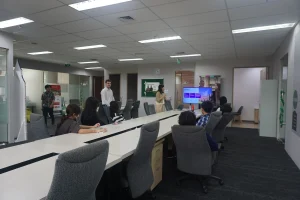
JA College’s academic framework is designed to prepare students for global universities. The A Level programme, recognized worldwide, allows students to specialize early and dive deep into subjects like Mathematics, Sciences, Economics, and English Literature.
In addition, the Foundation Programme acts as a fast track for students aiming to enter university with confidence and clarity. It’s tailored for learners who are ambitious, curious, and ready to rise above standard high school models.
Features include:
- Pearson Edexcel A Level syllabi
- Experienced educators with global teaching backgrounds
- Small classes for deeper engagement
- Personal development modules
Alumni Success Stories
Success leaves clues and JA College alumni are now thriving at prestigious universities across the globe, from the UK and Australia to US and Singapore. JA College isn’t just about getting students into top universities. It’s about ensuring they thrive once they get there with confidence, capability, and clarity of purpose.
Examples include:
- Business majors in the UK
- Computer science students in the US
- Future doctors gaining scholarships in Australia
A Lifestyle that Supports Learning

Learning isn’t limited to the classroom and Bali makes that statement true in the best ways. Imagine a morning in a philosophy seminar, followed by a sunset surf with classmates.
JA College’s campus is:
- Safe and designed for interaction
- Nestled in a vibrant community filled with culture, food, and arts
- Tech-integrated and sustainability-conscious
Students benefit from a balanced lifestyle that nurtures both the mind and spirit, a big reason many say it “doesn’t feel like school.”
Why High School Students Thrive at JA College
Traditional high schools can feel restrictive. JA College flips that script. Here, high school students:
- Learn how to manage time like undergraduates
- Work on real-world projects
- Get mentorship tailored to their goals
This isn’t just about grades, it’s about preparing for a meaningful, successful life after graduation.
Students also develop skills in:
- Academic research and writing
- Collaboration and presentations
- Emotional intelligence and leadership
- Entrepreneurship project
FAQs: Choosing the Best A Level Programme in Bali
Who should apply to JA College?
Any student seeking a more international, flexible, and personalized education. Ideal for those targeting top universities or who want a unique high school experience.
What support is available for international students?
From visa guidance to accommodation help and cultural orientation, JA College has a robust support system in place.
How does the Foundation Programme differ from A Levels?
While A Levels offer a deeper dive into 3-5 subjects, the Foundation Programme prepares students more broadly with skills and credits for direct university entry, particularly for those looking at Australia or the UK.
How to Apply to JA College
JA College is selective but accessible. Here’s a quick guide:
- Requirements: Academic records and interview
- Timeline: Applications open year-round, but early submission is recommended (January and July Intake)
- Contact: Visit [JA College Website] or email admissions@jacollege.com
Final Thoughts: Is JA College Right for You?
JA College is more than just the best junior college for A Level in Bali, it’s a mindset shift. For students who crave more freedom, deeper learning, and a true head start in life, this is where it begins.
If you’re ready to step out of the box and into a global future, JA College is waiting for you.
Explore. Learn. Grow. At JA College Bali.

Why Study at a Junior College Instead of Going Straight to University?
If you’re finishing high school and planning your next steps, you might feel the pressure to head straight to university. But what if there was a smarter, smoother path? Enter the junior college experience, a powerful stepping stone that blends academic depth, personal freedom, and global preparation.
What Is a Junior College?
A junior college is a post-secondary institution that bridges high school and university. Think of it as an academic launchpad: more advanced than school, but more supportive and personalized than a university. Students in junior colleges often study international curriculum like A Levels or Foundation programmes, preparing them for direct university entry and for life.
Benefits of Attending a Junior College First
Before diving into university life, junior colleges offer a unique space to grow academically and personally. Here’s why thousands of students choose this route every year:
- Smaller Class Sizes
Get one-on-one attention and build close relationships with teachers. - Academic Preparation
Transitioning from school to university can be a shock. Junior colleges offer university-level rigour in a guided environment. - Explore Before You Decide
Not sure what to major in? A junior college lets you test subjects before committing to a full degree. - Cost Effective Start
Save on tuition while still receiving a world-class education and international recognition.
Introducing JA College: Junior College with A Level and Foundation Programmes
Welcome to JA College , a junior college in Jakarta and Bali to offer both the Pearson Edexcel A Level and Foundation Programmes . We’re not just a school, we’re a launchpad to the world’s top universities .
Our mission? To provide high school students the freedom and flexibility of university life, while offering structured, high quality education.
A University Learning Style for High School Students

At JA College, we believe students learn best when they’re empowered to think for themselves. Our classrooms look more like university seminars:
- Discussions over lectures
- Projects over rote memorization
- Independent research over textbook-only learning
This unique setup allows students to develop essential skills early — from critical thinking and communication to research and academic writing.
Where Our Alumni Go: A Global Network of Top Universities
Graduates of JA College don’t just get into university, they thrive there. Our alumni are now studying at top institutions in the UK, Australia, US and Asia , often with scholarships and early acceptance.
Some of our success stories include:
- Almost of our students got accepted from more than 5 to 10 top Universities
- Graduates pursuing law and psychology in the UK
- Students entering business and technology programmes in Australia/Malaysia
The Freedom to Grow Academically and Personally

At JA College, students aren’t just learning facts, they’re discovering themselves. By blending a high school programme with a university-style structure , students experience:
- More control over their schedule
- Open dialogue with mentors and educators
- A chance to build leadership, creativity, and emotional intelligence
This environment fosters real independence and confidence, essential traits for future university success.
Is Junior College Right for You?
If any of the following sound like you, junior college could be your ideal next step:
- You’re not 100% sure what to study at university
- You want more freedom and depth in your education
- You’re ready for a challenge but still value support
- You want to apply to top universities worldwide
Then JA College might just be your best decision yet.
Ready to join a place where you can study, grow, and explore freely ? Visit our campus, talk to alumni, or schedule a consultation and take your next step with clarity. Choosing to study at a junior college like JA College isn’t a step back — it’s a leap forward . It’s a decision to grow intentionally, to learn in a way that suits your pace, and to launch yourself into university with confidence and purpose.
Skip the stress. Start strong.
JA College, where your future begins.

Best Junior College for UK University Preparation
Thinking about studying in the UK? Whether you’re aiming for a university in London, Manchester, Edinburgh, or Oxford, the path starts with the right academic foundation. And when it comes to UK university preparation, JA College stands out as the best junior college to get you there.
Why UK University Preparation Matters
The UK offers some of the world’s most prestigious universities, but competition is fierce. Admission officers look for more than grades, they want students who are academically mature, self-motivated, and ready to excel in an independent learning environment.
That’s where early preparation makes all the difference.
The Advantage of Choosing a Junior College
Many students apply directly to university after high school. But for those who want to increase their chances of success, a junior college offers:
- A focused academic environment
- University-style learning at a pre-university level
- Support for navigating the complex UCAS system
Junior colleges offer a buffer — and a boost — between school and university. And JA College is designed to do exactly that.
JA College: The Best Junior College for UK University Preparation
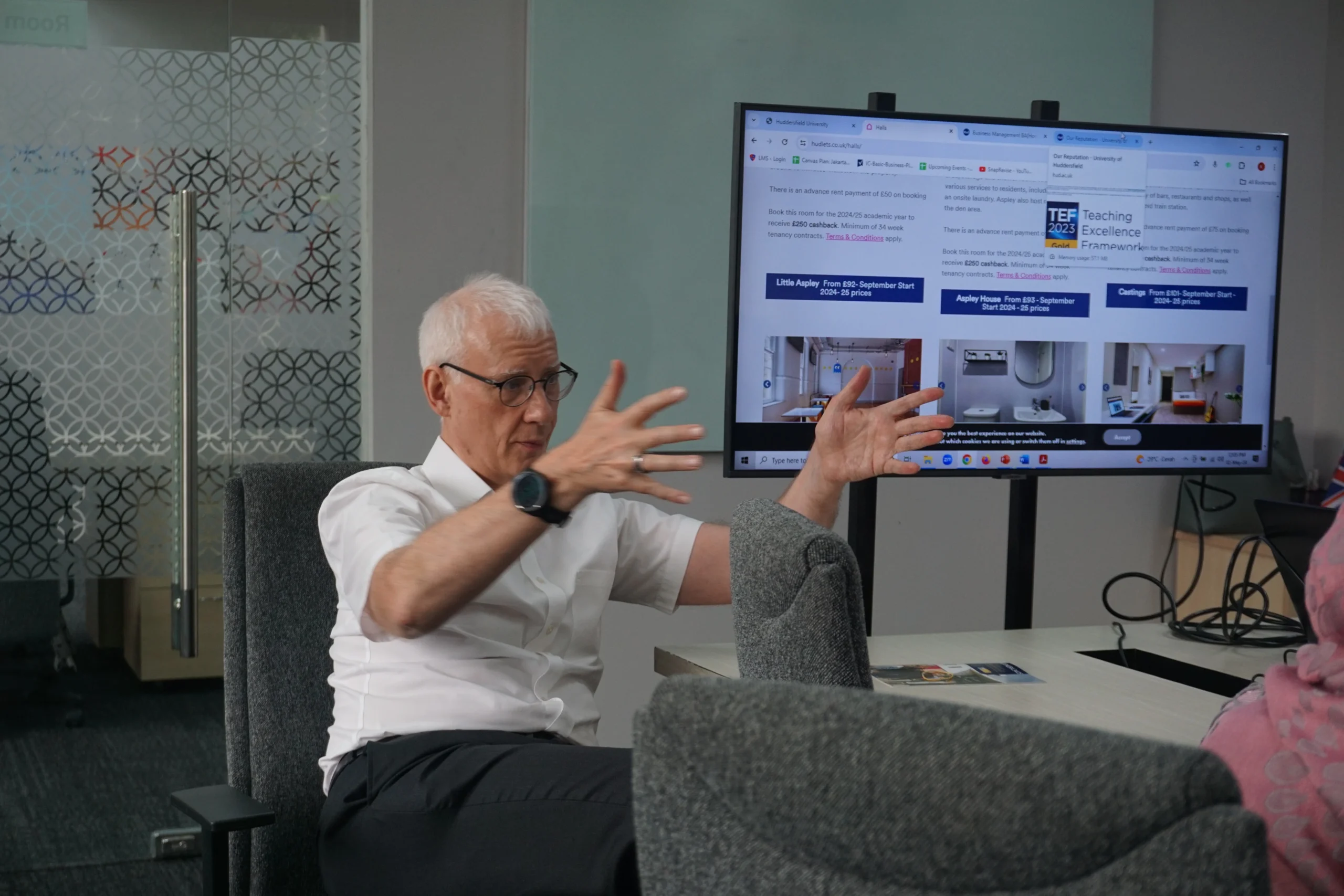
JA College is a premier junior college that specializes in academic pathways to the UK. With a curriculum aligned to UK university expectations, JA College combines the best of academic rigor and personalized mentoring.
Students can choose between:
- The Pearson Edexcel A Level Programme, known globally for academic excellence
- The Foundation Programme, a one-year fast track to UK undergraduate studies
A Level Programme at JA College
The Pearson Edexcel A Level is one of the most recognized qualifications for UK university admission. At JA College, the programme is:
- Tailored to UCAS requirements
- Led by experienced instructors with international backgrounds
- Designed for depth and flexibility, letting students specialize in subjects like Maths, Sciences, Business, or Humanities
Students learn to think critically, write analytically, and manage time like university students — all skills highly valued by UK institutions.
Foundation Programme: Another Route to the UK
JA College also offers a Foundation Programme — a direct university preparation track for students looking to complete their pre-university qualification in one year.
It is:
- Ideal for students who are clear on their degree path
- Recognized by a wide range of UK universities
- Built on real university course structures, including assessments, projects, and presentations
This fast-track route is especially useful for students ready to specialize and accelerate their university entry.
Alumni Achievements: From JA College to the UK
Graduates of JA College have successfully gone on to:
- Russell Group universities
- Specialist programmes in law, business, computer science, and international relations
- Secure competitive scholarships and conditional offers
From writing outstanding personal statements to performing well in interviews, JA College students are consistently well-prepared.
How JA College Prepares You for UCAS Success

Applying to a UK university through UCAS can be overwhelming. JA College simplifies this process with:
- Dedicated university counseling
- Workshops for personal statements and references
- Interview coaching
- Ongoing mentorship throughout the application timeline
Our support is tailored to each student’s goals and university preferences, ensuring their application stands out in the UK admissions pool.
Who Should Choose JA College?
JA College is ideal for students who:
- Want to pursue undergraduate study in the UK
- Prefer a more personalized, supportive learning environment
- Are motivated, curious, and ready to take ownership of their education
Whether you’re dreaming of London School of Economics, King’s College, University of Manchester, or beyond — JA College is the place to start. Here are some of our University partners in the UK, you could also get the guaranteed entry to those universities:
UK Partner University
- University of Birmingham
- University of Bradford
- University of Bristol
- Brunel University London
- Cardiff University
- Universitas Central Lancashire (UCLan)
- De Montfort University
- Durham University
- University of Exeter
- Universitas Harper Adams
- University of Huddersfield
- Universitas Keele
- University of Kent
- Universitas Kingston London
- Lancaster University
- University of Leeds
- Universitas Manchester
- Manchester Metropolitan University
- Universitas Oxford Brookes
- And more
Getting Started: Apply to JA College
Applications are accepted year-round. We offer:
- Pearson Edexcel A Level (2-year programme)
- Foundation Programme (1-year university prep)
To apply or speak with our admissions team, contact:
Your Future in the UK Starts at JA College
Choosing a junior college is not a delay — it’s a decision to prepare smarter, aim higher, and achieve more. With tailored support, proven pathways, and a track record of success, JA College is the best junior college for UK university preparation.
Ready to launch your UK university journey?
Start it with confidence — start it with JA College.
